Celebrating 25 years of BC Renal and the provincial renal network


Celebrating 25 years of BC Renal and the provincial renal network


Welcome to the fourth annual edition of Renal News! Here, we bring you a snapshot of our network and many of its accomplishments of the past year. Carried out by provincial committees and working groups, professional groups, and the BC Renal team, our initiatives are focused on improving care, experiences and outcomes of kidney patients in BC and on promoting better kidney health and overall well-being of the general population.
New this year, we cover the 2022-2023 planning process for our next five-year strategic plan, Indigenous cultural safety and humility, our 2022 patient experience survey, and work of the Emergency Management Committee, Facilities & Equipment Planning Committee, and Renal Administrators Committee. These three committees, along with other committees and professional groups, have made new
strides in our network’s ability to provide kidney care.
Throughout, you will find links to related pages of BCRenal.ca where you can access resources and learn more.
With this special edition of Renal News, we hope you enjoy getting to know our network better!
Message from BC Renal Executive Director 1 About the BC Renal network 2
Meaningful Outcomes............................................................................................ 4
Strategic Planning .................................................................................................... 6
Indigenous Cultural Safety & Humility 8
Patient Experience Survey 10
Patient & Family Engagement Advisory Committee ........................ 12
PROMIS ............................................................................................................................. 14
BC Children's Hospital Renal Program 16
Education and Knowledge Translation 18
Annual Campaigns ................................................................................................... 24
Improvements Driven by BC-Wide Committees 30
Improvements Driven by BC-Wide Professional Groups 52 Connect with BC Renal 66
Thank you for all that you do, have done and will do for people living with kidney disease in BC.
We have spent the last three years managing within the context of the pandemic and our upside-down lives, professionally and personally. We have done this alone and together.
During this time, we have come together to address workforce shortages and new ways in which we care for people, such as with virtual health, education for Indigenous cultural safety and humility, and delivering emergency responses in the face of unprecedented heat waves, fires and floods. Pretty amazing!
Some of you may not know that we have a special milestone to celebrate. It’s been 25 years since we first formed as a provincial network. Many of you do not remember a time without “BC Renal,” formerly the “BC Renal Agency.” Over those 25 years, we have evolved and grown and created a community of caring individuals and teams, working directly and indirectly to improve the lives of people living with kidney diseases. Thank you again for being a part of that journey.
Throughout this last year, 2022, all of the provincial committees and working groups, professional groups, our patient partners and the BC Renal team have continued to support ongoing projects, and where possible, seek and embrace opportunities and innovation.
We have kept in mind alignment with PHSA and Ministry of Health priorities, and we have increasingly focused our resources on projects that will have the greatest impact.
Together, we have continued to uphold our high standard of care and have created new provincial initiatives and resources, many of which are described in this publication.
As we reflect on the past year and look ahead to the new one, we sincerely extend our deep appreciation to everyone in our network. Thank you for your continued dedication, courage and compassion.
Respectfully,
Dr. Adeera Levin Executive Director
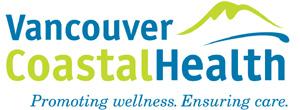

the northern way of caring
(province-wide)
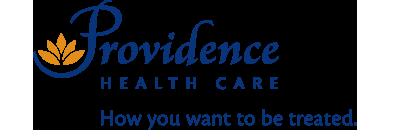
•
•
•
•
•
•
•
Together over the past 25 years, BC Renal and our provincial network of health authority renal programs and other partners have made progress in improving patient experiences and the delivery of care for people living with kidney disease.

BC Renal began a comprehensive planning process in 2022 to gather input from across the network and identify priorities for our 2023-2028 strategic plan.
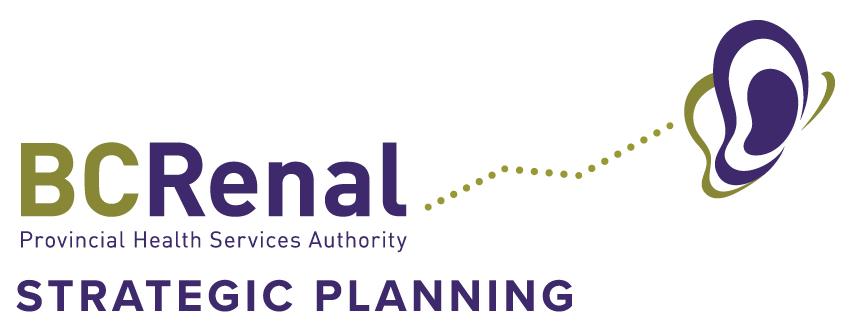
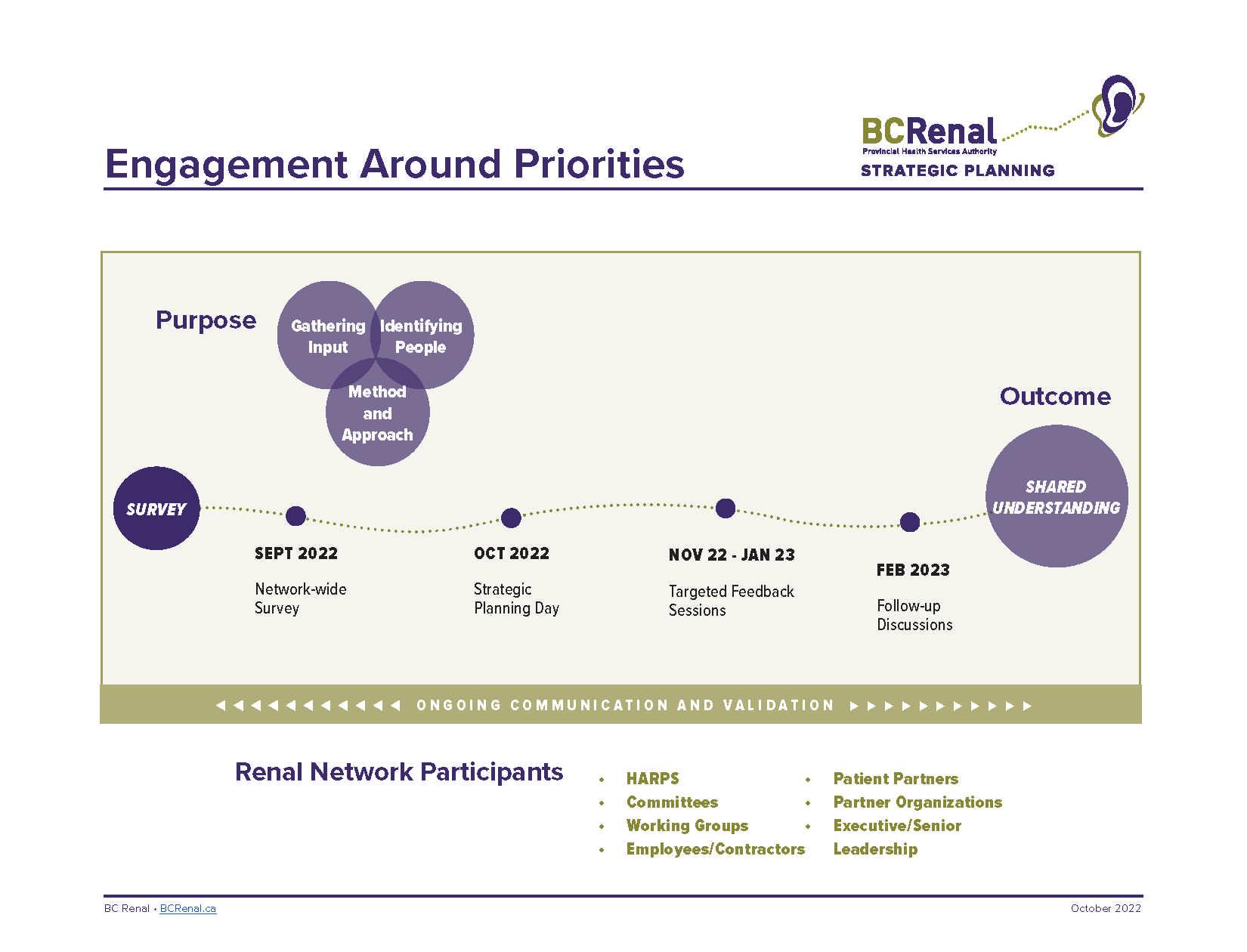
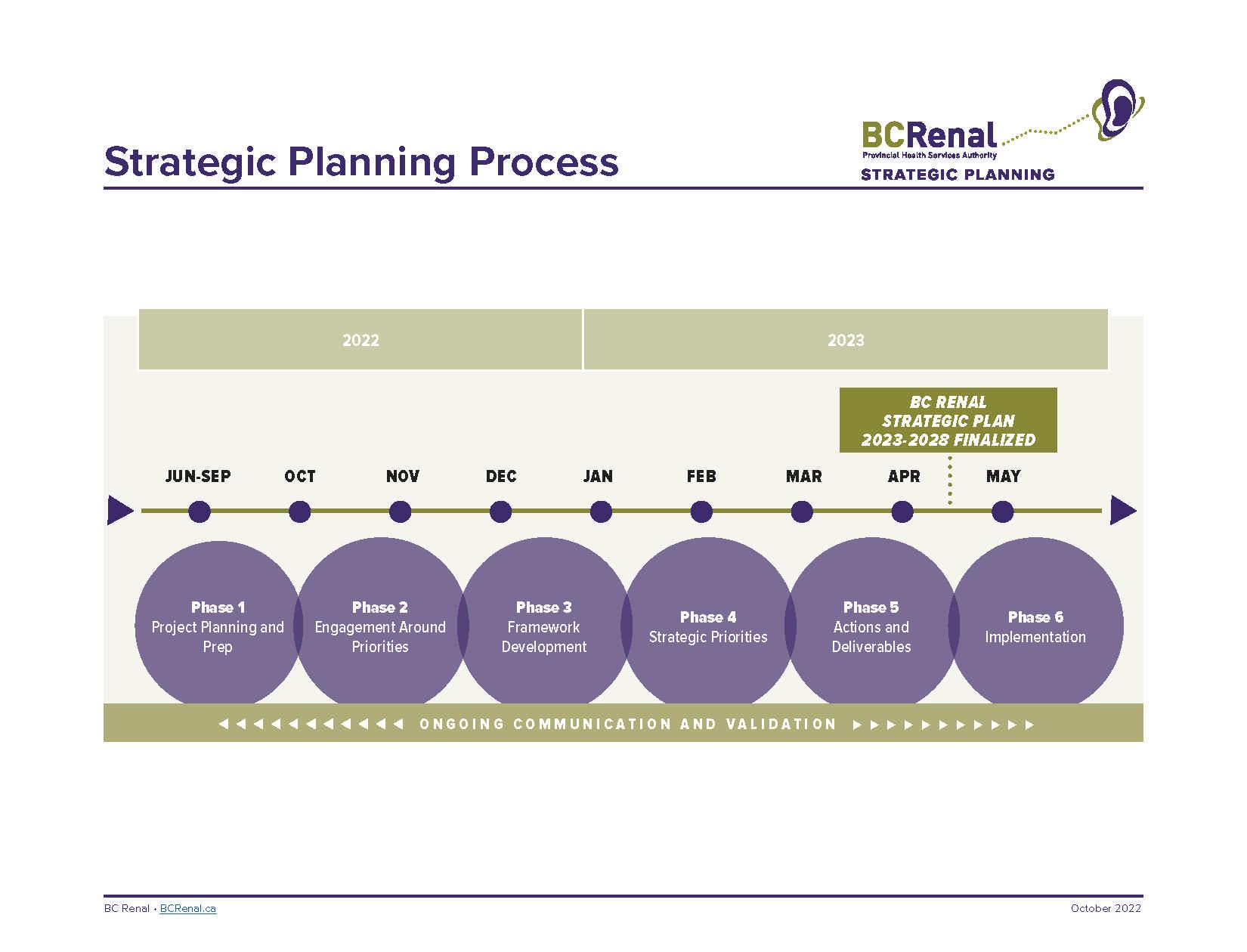
The first step was to reach out broadly across the province in September with an online survey of all committee and working group members, patient partners and BC Renal employees, as well as a number of representatives of partner organizations.
This was followed up in October with a more focused group of 100 kidney health professionals, administrators and patient partners who were nominated by their peers to gather in person for an information-gathering and sharing Strategic Planning Day.
Input from both engagements is being analyzed and carried forward for additional meetings in early 2023 with BC Renal employees, partners and kidney care leaders to help inform and finalize priorities for the next five years. The new set of 20232028 priorities will also align with PHSA and Ministry of Health strategic directions, and will be communicated broadly once finalized.
One of our key goals in the development of the 2023-2028 strategic plan was to ensure engagement of a broad range of voices and perspectives. Our hope is that the plan will serve as a guide and roadmap for the collective efforts of our network in the years to come, both to address challenges and to support opportunities to positively impact the outcomes and quality of life for those living with kidney disease in BC.


I am in awe of the resilience and commitment of the renal network. After reviewing the responses from the survey and witnessing the attendance and enthusiasm at the Strategic Planning Day, I am confident that the BC Renal strategic plan will reflect what those living with kidney disease and the renal community collectively want to focus on in the next several years.
 Babita Basra Director, Learning, People and Operations, BC Renal
Gloria Freeborn Director, Strategic Initiatives, Education and Development, BC Renal
Babita Basra Director, Learning, People and Operations, BC Renal
Gloria Freeborn Director, Strategic Initiatives, Education and Development, BC Renal
In 2022, BC Renal provided educational resources and opportunities for employees, as well as engaged in short and long term planning with PHSA Indigenous Health, to support Indigenous cultural safety and humility in kidney care.
To date, 85% of BC Renal staff have completed Sanya’s Indigenous Cultural Safety Online Training, with remaining employees expected to complete the course in the coming year.
Blanket Exercise to better understand the impact of colonialism and discuss how they would carry the experience forward in their personal and work lives. Later that month, BC Renal marked the National Day for Truth and Reconciliation with a networkwide message including links to a range of resources.
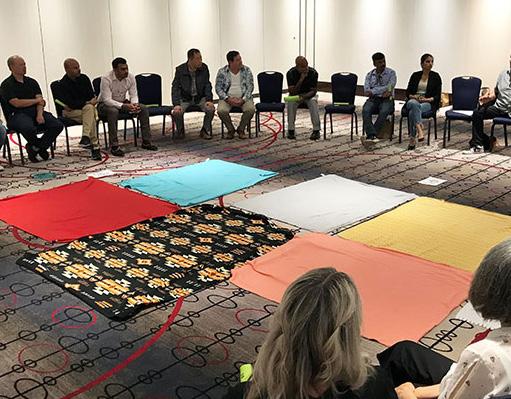
For short and long-term planning, a working group focused on developing an Indigenous Kidney Health Strategy in collaboration with PHSA Indigenous Health. Identified goals include:
• Building authentic relationships with Indigenous partners and organizations
• Expanding educational opportunities across the network
• Enhancing culturally-safe communication
• Developing a training program for medical trainees
In June, staff learned more about the significance of land acknowledgements in a webinar hosted by the Can-SOLVE CKD Network, and in mid-September, they participated in an in-person KAIROS
• A recruitment strategy to ensure Indigenous representation at BC Renal
• Advancing Indigenous patient experience and health outcomes
• Participated in PHSA’s Anti-Indigenous Racism Response Training Pilot Program
• Collaborated with BC Transplant and the BRIDGE to Transplantation initiative on the development of a new website, with a focus on storytelling and Indigenous ways of knowing

• Continued to be a funding partner of Can-SOLVE CKD, including support for:
• the Kidney Check program, which provides culturally appropriate, individualized diabetes and kidney health screening, support and follow-up in rural and remote Indigenous communities

• a set of webinars and a guidebook to support authentic, purposeful land acknowledgements
Web info & resources:
Can-SOLVE CKD Wabishki Bizhiko Skaanj Learning Pathway
At BC Renal and across the renal network, we are committed to taking action to address antiIndigenous racism in kidney care, and advancing cultural safety and humility. With the support of our colleagues at PHSA Indigenous Health, we have spent this past year codeveloping a strategy that will in the initial phases focus on building authentic relationships with Indigenous health partners and strengthening cultural safety and humility. Together we aim to close the health gap between Indigenous and non-Indigenous people with or at risk of kidney disease, resulting in improved health outcomes and experience for Indigenous
Dr. Michael Copland Senior Medical Lead, BC Renal2022 marks the fourth time BC Renal has conducted a province-wide survey to assess patient experience of kidney care. Previous surveys were in 2009, 2012 and 2016.
New in 2022: Patients were able to respond by mail, phone or online; the survey was available in English, Punjabi, Traditional and Simplified Chinese; and for the first time, pediatric patients and their families at BC Children’s Hospital were invited.
16,000 patients actively receiving dialysis or kidney care from a clinic in one of the health authority renal programs were sent the survey with 25% responding (considered a valid and high response rate). 74% of survey respondents rated overall quality of services as “Very Good” or “Excellent.”

The top three improvement opportunities identified across modalities and health authorities were:
1. Ask patients to talk about their goals in caring for their condition.
2. Ask patients how their chronic condition affects their life.
3. Help patients set specific goals in caring for their condition.
Thank you to all patients who shared valuable feedback with us! BC Renal committees and health authority renal programs will use the detailed results to inform ongoing improvement efforts.
See our Disease & System Statistics web page for the province-wide survey reports, and two full-page infographics that provide more of an overview of the results.
Web info & resources: BCRenal.caAbout Disease & System Statistics
2022 Patient Experience Survey Infographic
2022 Patient Experience Survey - A Closer Look Infographic
In the spirit of striving for excellence, the reports are designed in a way that helps action planning. Moreover, a strategy aimed at supporting improved patient goal-setting is available to the network. Developed through a series of previous engagement activities, it includes existing tools and resources, and comes with a worksheet to help teams identify improvement opportunities most relevant to them through asking patients about the goals that matter to them and supporting them towards those goals.

In 2022, the BC Renal Patient & Family Engagement Advisory Committee focused on its ongoing operational activities of integrating more patient and family voices into the work of BC Renal and its provincial committees and working groups.
Despite the COVID-19 pandemic, patient and family member interest in getting involved with BC Renal grew by 56%. Although there is still a lot of room for improvement in diversity and inclusion, we heard from more diverse voices through our many patient and family engagement activities.
A two-page infographic, “Patient & Family Engagement: Highlights of the Year 20212022,” is available on the BC Renal website and provides more of an overview.
Many thanks to Randy Spensley (outgoing co-chair) and Laura Bennett (former co-chair, BC Renal Patient & Family Engagement Framework Working Group) for all of their contributions over the years, and a big welcome to Bill Dear, new cochair of the Patient & Family Engagement Advisory Committee.
• Marked first anniversary of Advancing Insights, a monthly newsletter with over 120 subscribers, which features patient engagement and educational opportunities within and beyond BC Renal

• Shared information and connected with patients and their families through presentations to groups such as Kidney Friends Circle
• Developed a dissemination plan and infographics for the 2022 Patient Experience Survey
Web info & resources: BCRenal.caAbout AccountabilityPatient and Family Engagement
report being better informed about the kidney health and care system in BC as a result of their participation
95% are satisfied with the engagement opportunities
are confident BC Renal takes the feedback provided by patient partners into consideration 100% consider the engagement opportunities a good use of their time
More clarification about the roles of patient partners and all involved in supporting them
connection
In 2022, the committee was varied by their individual backgrounds, stories and geographical locations. Yet, all the members had the same goal which was to help and enrich other patients’ lives while dealing with kidney disease. The respect and openness we had for each other was very enlightening. The collective ideas and thoughts were extremely important in achieving what we did. They are dedicated and wonderful people.
I firmly believe that the groundwork that has been established will benefit many patients and caregivers in the many years to come. It has been an honour to be part of this committee and I hope it will continue to grow and build on the foundations which have already been established.
Randy Spensley out-going Co-Chair, Patient & Family Engagement Advisory Committee
PROMIS – the Patient Records and Outcome Management Information System – is the only province-wide integrated registry and clinical information system for kidney disease and transplant patients.

Readiness Report, and a new and improved Kidney Transplant Referral Status Report.
The Kidney Transplant Readiness Report is a new report that provides an easy identification process for patients who are eligible and ready to begin the pretransplant process. Similar to the eGFR priority report, but with additional columns, this new report provides easy identification of patients who are currently followed up in a centre, along with their status in the pretransplant process.
The Transplant First Project (Phase 2) had a goal to implement and sustain enhanced pre-transplant clinical processes along with available tools and resources across BC’s kidney care clinics, regional transplant clinics and provincial transplant centres. This is to ensure every kidney care clinic patient who is a potential kidney transplant candidate is identified, assessed and supported along the path toward transplantation as the treatment of choice.
2022 saw several important enhancements to PROMIS, driven by the Transplant First project, including the new Transplant
The Kidney Transplant Referral Status report was moved from PROMIS Classic to the newer PROMIS 4 with significant improvements to help teams track how individual patients are moving along the pre-transplant process. The new and improved interactive report provides detailed patient level information with a consolidated view that is a single and shared source of truth which:
• Tracks testing and consultations/ referrals, including status, dates, and who is responsible
Includes tracking of information shared with patient and family doctor/GP
• Is accessible by all renal teams (kidney care clinics, regional transplant clinics, provincial transplant centres)
Not being able to see where an individual referral is, or what might be outstanding, has been a challenge in the past. And while the changes above were driven by Transplant First for tracking preemptive transplant referrals, it has quickly become apparent that they hold value for dialysis programs as well, with just a few refinements to the existing functionality.
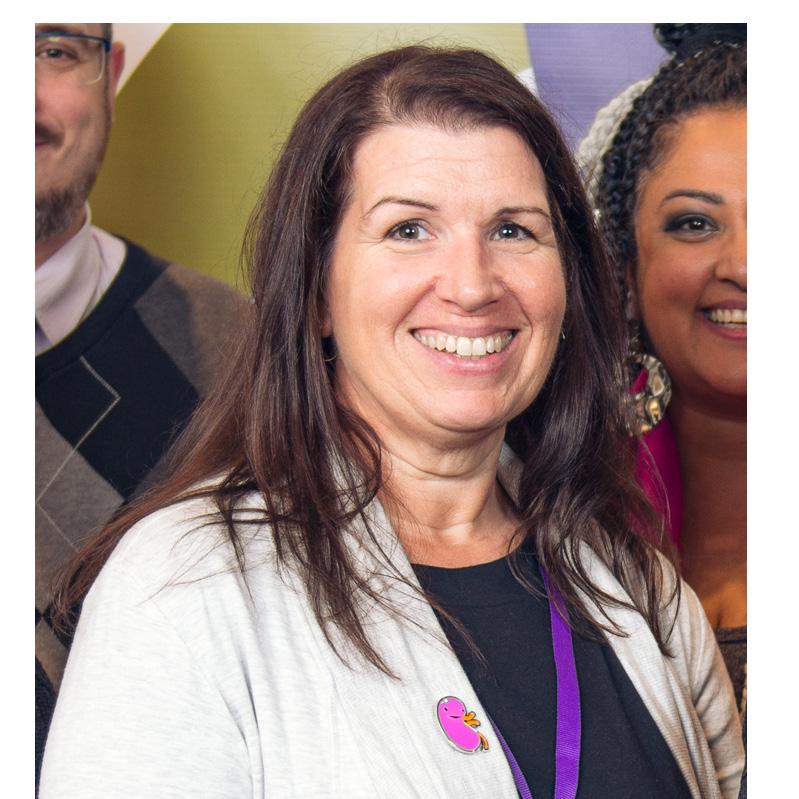
• PROMIS Classic’s phased migration to the newer PROMIS 4 continued with the modules named Hemodialysis Follow-up, Document History, Acuity Assessment, and Hospitalization all moving to the newer version in 2022

• Expansion of the Emergency Management module to include support for home therapy and predialysis patients
When the project team started identifying the changes they’d like to see in PROMIS to support their work, I knew this would address a pain point I’d heard expressed before. A system change wasn’t enough though; it was the combination of workflow standardization and commitment to a shared source of truth that was the secret sauce. And it’s great that other modalities are finding that it addresses a need for them as well.
Karin Jackson Director of Operations, PROMISThe most rewarding aspect of working on my project has been the knowledge that I am contributing to an initiative that can provide so many different benefits to patients, families, physicians, and the health care system. If implemented, the clinical pathway to treat pediatric hypertension could help physicians diagnose patients more accurately, reduce the burden of testing on patients and families, and reduce unnecessary cost to the system.
Gia da Roza UBC Integrated Sciences summer student

 Dr. Janis Dionne Medical Director, Pediatric Kidney Services, BC Renal
Gia da Roza UBC Integrated Sciences summer student
Dr. Janis Dionne Medical Director, Pediatric Kidney Services, BC Renal
Gia da Roza UBC Integrated Sciences summer student
Pediatric hypertension is a growing concern with 1 in 20 children having high blood pressure. Left unchecked, pediatric hypertension increases the risk of cardiovascular and kidney disease later in life. Compared to adults, children are more likely to have a cause identified for their hypertension. In fact, more than 50% of pediatric hypertension will have a secondary cause. Unfortunately, there is a lack of available evidence about the usefulness of different diagnostic tests, which often results in significant practice variation and unnecessary investigations.
In an effort to standardize care and minimize practice variation, the Pediatric Nephrology Clinical Pathway Development Team at BC Children’s Hospital is building an evidence-based, multidisciplinary clinical pathway for the diagnosis and management of pediatric hypertension. This marks the third pathway undertaken by the team to support the care of children with the most commonly seen kidney conditions throughout the province.
Using the results from a 15-year historical practice audit, and with the help of a pediatric nephrology fellow and a UBC Integrated Sciences summer student, the team has identified which investigations are most helpful for diagnosing the cause of the hypertension and assessing the patient’s cardiovascular risk.
They also analyzed the potential cost savings associated with adopting a standardized clinical pathway into care findings. They found that limiting initial testing to only the most helpful diagnostic tests saves hundreds of dollars per patient for the provincial health care system and minimizes unnecessary testing for children and families across BC.
Despite initially being a local initiative, the team hopes the pathway’s impact will extend throughout the province and across the country. If these results are incorporated into future pediatric hypertension guidelines and/or health system reform initiatives, such as the “Choosing Wisely Canada” campaign for reducing unnecessary testing in health care, the clinical pathway has the potential to improve the care of children with pediatric hypertension across Canada.
• Presentation of the hypertension pathway investigation results at the 2022 International Pediatric Nephrology Association (IPNA) conference, garnering early interest, feedback, and support for this work
• Engagement and partnership with pediatricians to ensure broad and balanced multidisciplinary input for the pathway’s proposed recommendations
• Creating patient- and physicianfocused educational handbooks for the diagnosis and management of pediatric hypertension (in progress)
Web info & resources:
bcchr.ca/nephrology
bcchildrens.ca/our-services/clinics/renal-program
A novel clinical pathway for pediatric hypertension aims to reduce unnecessary testing


Evidence-based and accessible education and knowledge translation opportunities are a key BC Renal commitment to our provincial network.
Our diverse audiences include British Columbians living with kidney disease, patient partners, and health professionals from all kidney care disciplines.
In 2022, we continued to offer regular online Patient Education and Province Wide Rounds webinars, covering the latest research, care practices, resources and more. Opportunities for learning more about living with and treating kidney disease are found on the Learning and Events page on the BC Renal website, along with recordings of past sessions. The BC Renal YouTube channel also provides session recordings plus stand-alone videos for additional learning.
While we took a hiatus in 2022 from our annual BC Kidney Days conference to focus on strategic planning, this pivotal learning opportunity will be back in 2023 on November 9 and 10.

BCRenal.ca Learning/Events
BC Renal - YouTube
The renal team puts on fantastic education opportunities for specific topics, but I was also looking for general nephrology knowledge. This led me to Provincial Wide Rounds. Learning from the amazing participants in our local nephrology world and meeting international professionals at PWR sessions provides me with a wealth of information, and I benefit from hearing nephrology colleagues’ personal experiences.
“I found it all to be very valuable and helpful, as I didn’t really have a clue about kidney transplants and living donors! The presenters gave such wonderful information. I now plan to speak to my nephrologist about it.”
Webinar attendee, Kidney Transplant & Finding a Living Donor
“I have attended before and always like when you have people that have gone through the process – and to be able to ask general questions.”
Webinar attendee, Kidney Transplant & Finding a Living Donor

BC kidney health professionals are engaged in a range of local, provincial and international research and quality improvement (QI) projects, many in collaboration with BC’s educational institutions. Their work is frequently published in peer-reviewed journals.
The Research pages of the BC Renal website include research information, resources, publications and presentations, and our research newsletter and related stories.
New in 2022, PHSA Research launched a Research News & Stories web page where several BC Renal stories and our newsletter were featured.
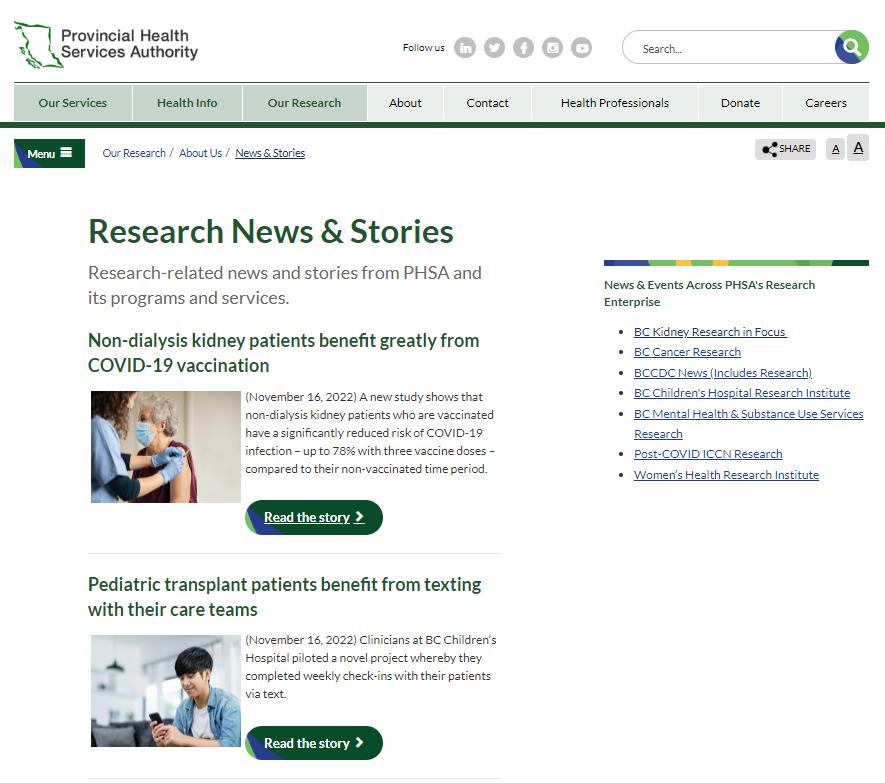
In 2022, BC Renal produced our third and fourth issues of BC Kidney Research in Focus. This semi-annual newsletter features stories about recently published research studies and quality improvement projects, plus people profiles, and links to the latest publications.
In consultation with a scientific editorial team, the newsletter aims to highlight the depth and breadth of studies and projects carried out by health professionals as well as patient partners who are part of research and quality improvement teams. In sharing the stories, the aim is to help translate knowledge into regular practice so our patients benefit from evidence-based care and experience the best possible health outcomes and quality of life.
The people profiles provide a behindthe-scenes look at project leads, research staff and patient partners to offer insight and inspiration to those who may be considering a project and would like to learn more about what’s involved.
Each year, BC Renal and the health authority renal programs use “valueadded” funds from provincial renal contracts to implement a variety of quality
Renal launched a web page that makes available all recent reports of these projects.

In addition to reporting on the use of funds, the reports provide kidney care teams across the province with examples of work they may be able to draw from to improve their own practices. They also help programs around the province focus on unique new work, instead of “reinventing the wheel” by replicating what may have already been done elsewhere in BC.

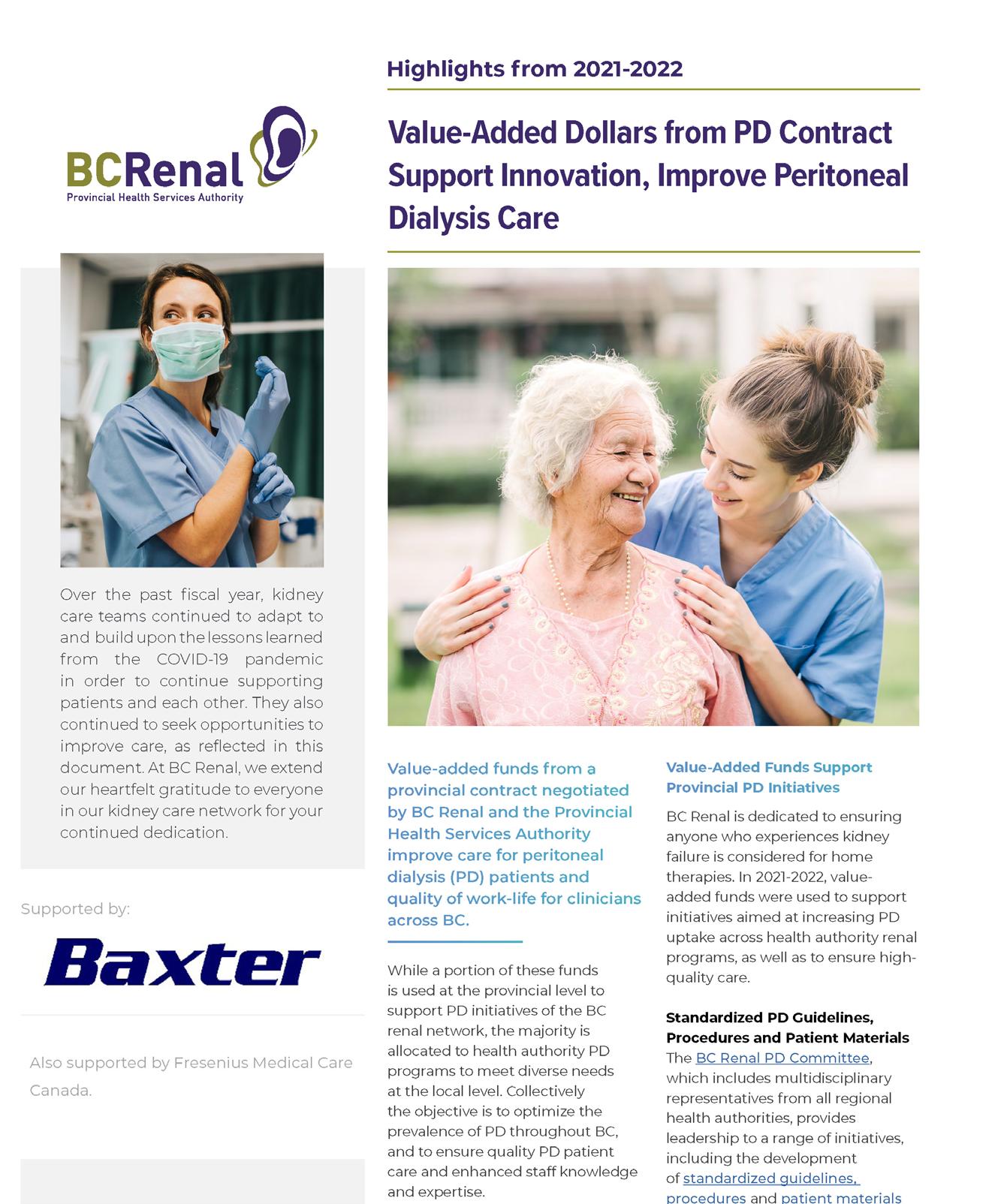
Research in kidney diseases over the last few years has really accelerated in new and exciting directions, with BC researchers being at the forefront of innovation. Everything from new therapies that prevent progression of diabetes and other types of chronic kidney diseases, novel targeted therapies for autoimmune kidney diseases, methods to improve dialysis care, and understanding how to best care for those with kidney disease during the COVID pandemic. The infrastructure, organization and people at BC Renal have been instrumental in supporting research in BC, and most importantly we are very thankful to all those with kidney disease who have participated in research despite the increasing challenges of managing their health conditions throughout the pandemic.
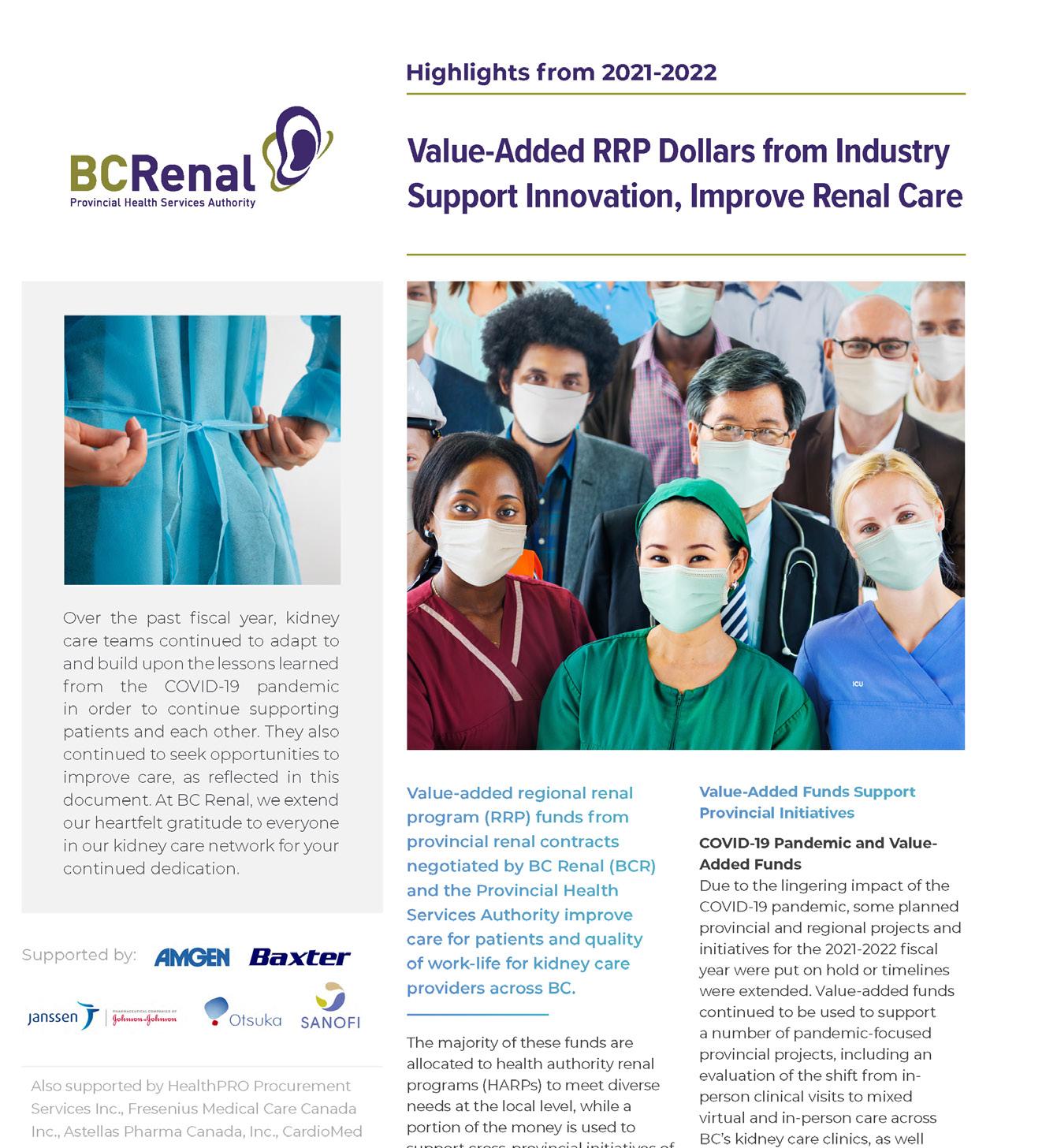 Sean Barbour Medical Lead and Chair, BC Renal Glomerulonephritis Committee, and UBC Researcher
Sean Barbour Medical Lead and Chair, BC Renal Glomerulonephritis Committee, and UBC Researcher
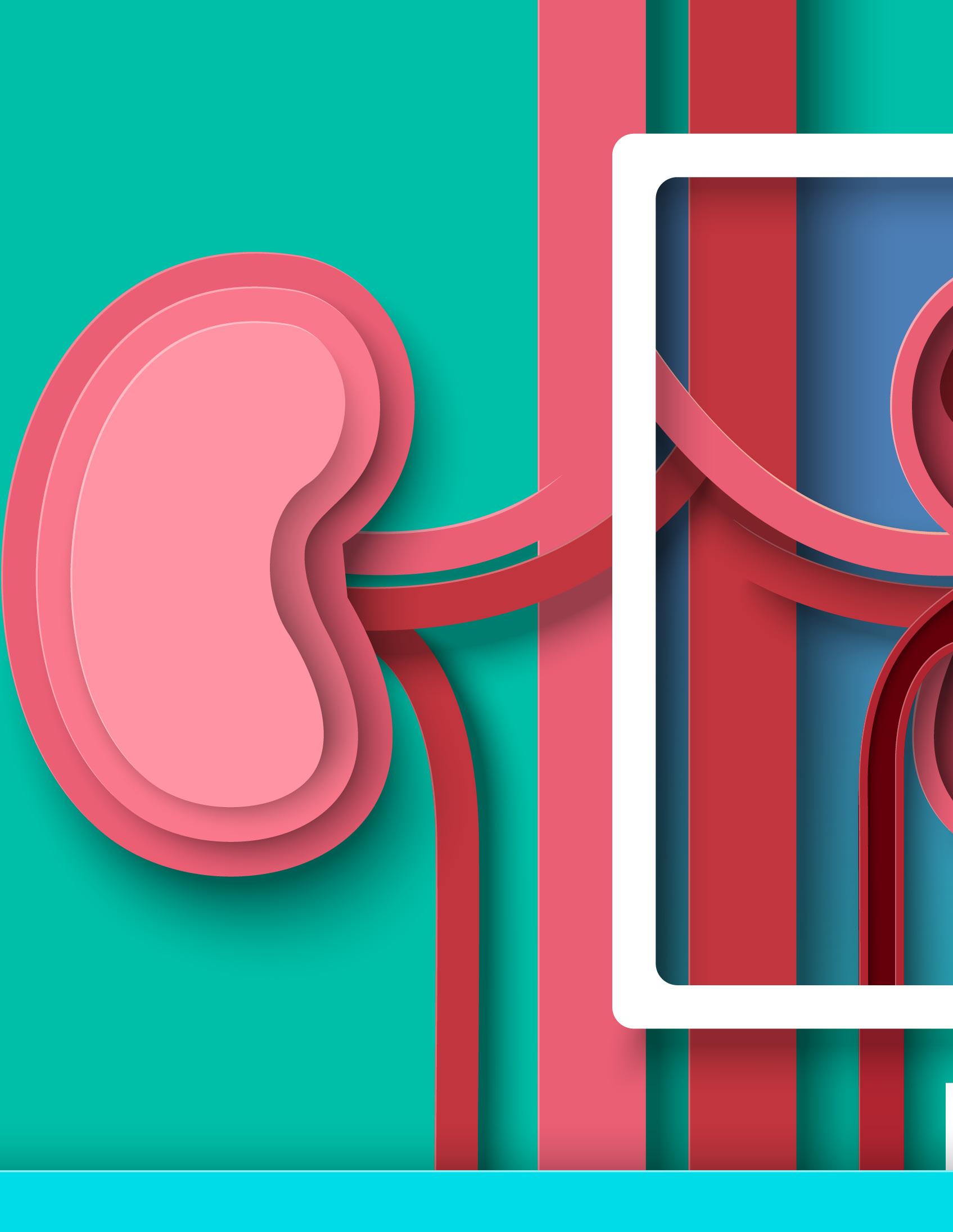
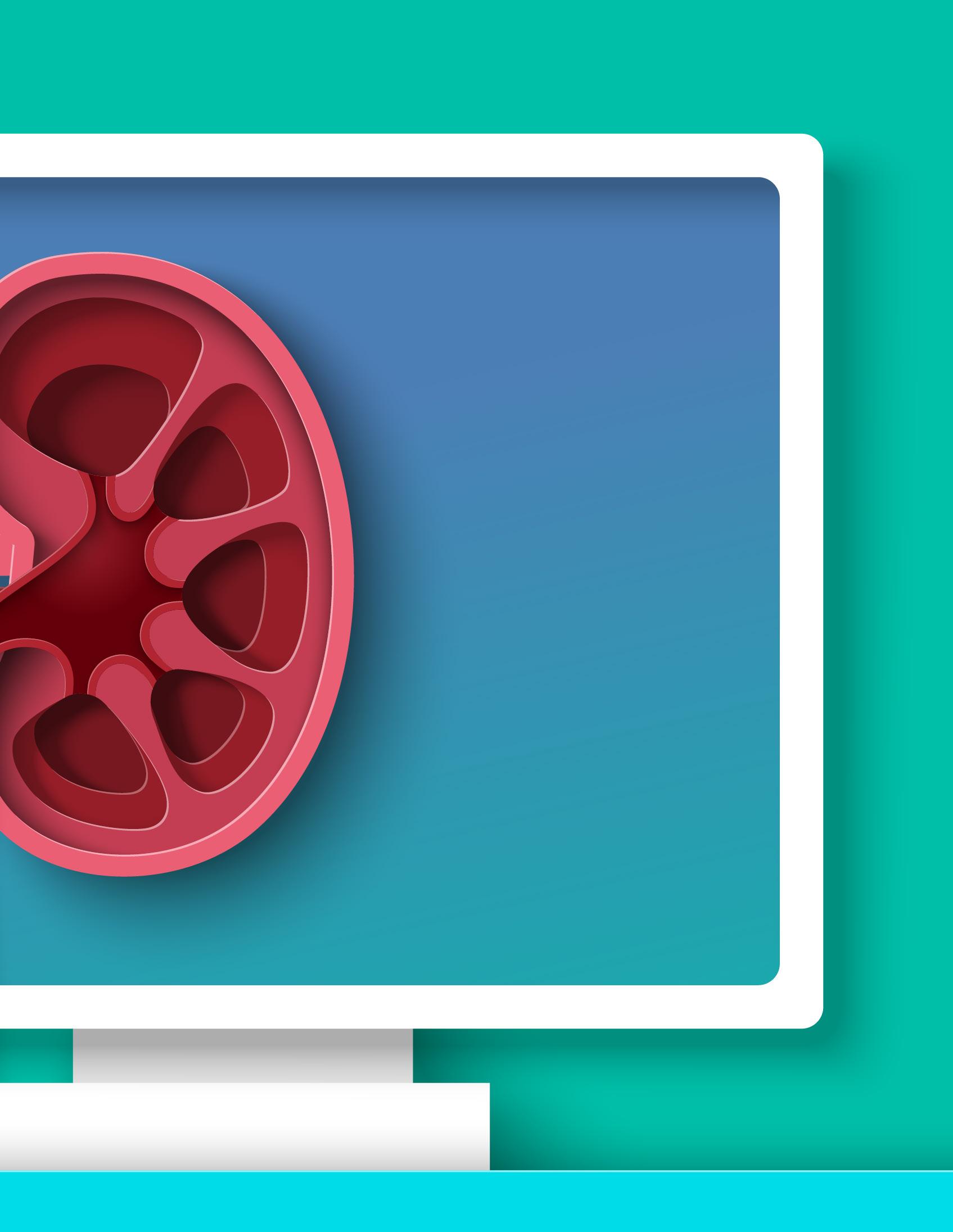
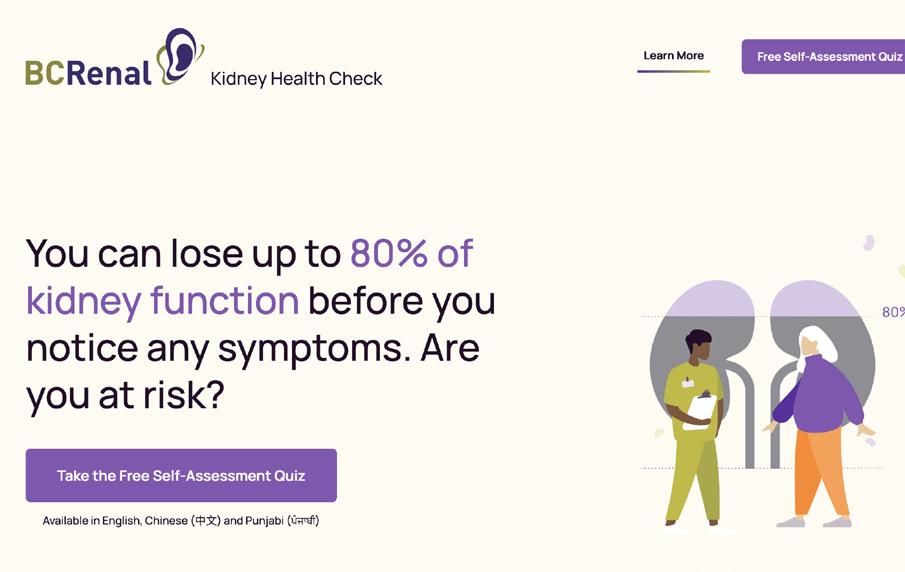
Every March, through Kidney Health Month campaigns and World Kidney Day, BC Renal promotes public awareness about how to keep our kidneys healthy, risk factors for kidney disease, and early diagnosis.
In 2022, for the fourth year in a row, we partnered with The Kidney Foundation of Canada - BC & Yukon Branch on a print, web, and social media campaign. This year, we introduced new graphics and messaging for a refreshed campaign called, “Could you be the 1 in 10 with kidney disease?”
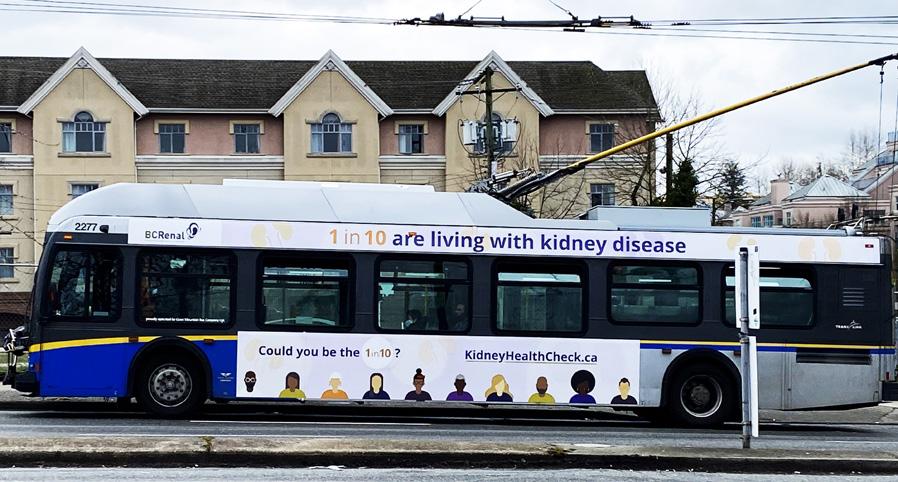
As in prior years, messaging guided the public to KidneyHealthCheck.ca and BC Renal’s online Kidney Health SelfAssessment tool, both of which were updated in 2022. Available in English, Chinese and Punjabi, the self-assessment tool provides a high-level assessment of kidney disease risk factors, and encourages those at higher risk to discuss kidney function testing (a simple blood test) with their primary care provider/family doctor.
BC Renal also ran a related transit campaign, produced a newsletter, and created a story featuring planning group patient partners Sheryl Straza and Rozelle Callangan.
Throughout the year, we also ran Facebook ads of our prior “Could you lose 80%?” campaign, which uses a light-hearted video and images to engage audiences and direct them to the self-assessment tool. In March, we also ran our popular 31-day #KidneyHealthChallenge campaign on social media to promote healthy choices for foods, fluids and lifestyle.
The year’s World Kidney Day theme was “Bridging the Knowledge Gap to Better Kidney Care.” BC Renal promoted the theme via social media and held an online all-staff get-together to mark the day, share resources and showcase the new video “Test Your Kidney IQ Game Show,” produced by The Kidney Foundation - BC & Yukon Branch.
For more about our variety of campaigns, see our Kidney Health Month web page.
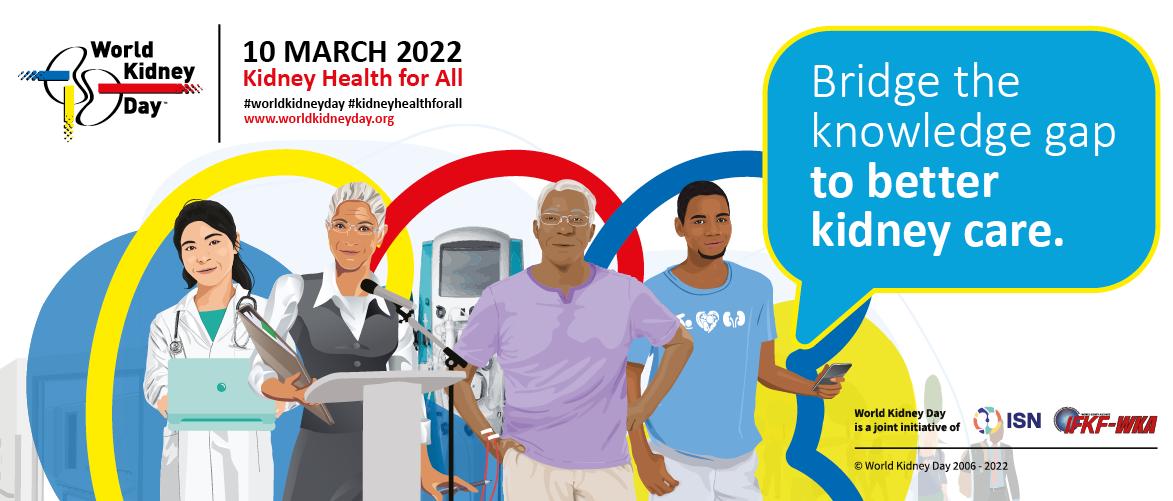
Web info & resources:
BCRenal.caHealth Info Prevention & Public Health Kidney Health Month
In the blink of an eye, anything can happen. It doesn’t matter whether it’s winter, spring, summer or fall, we live in a time when changing weather can happen quickly, with undeniable force and serious outcomes.
However, it’s not just weather-related events we need to prepare for. Many British Columbians live in earthquake-prone areas, and other serious events can arise at any time. Emergency preparedness is particularly crucial for kidney patients, especially those who rely on life sustaining dialysis care.
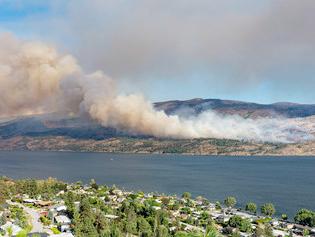
In recent years, BC Renal has bolstered our emergency preparedness resources and they are readily accessible on our website: How Dialysis Patients Can Prepare for Power Outages and Other Disasters video
• Emergency Preparedness Information for Dialysis Patients booklet
• Planning for Disaster wallet cards
• Planning for Disaster poster
• Kidney patient emergency information forms
• Emergency disconnect procedures for home dialysis patients
All of these resources are available in English, Chinese and Punjabi.
northern
New emergency resources added in 2022 included Staying Cool in the Summer – Tips for Dialysis Patients and a Staying Cool in the Summer poster. Both are available in the Emergency Preparedness section of our website.
BC Renal promotes the importance of preparation with Emergency Preparedness Month each May.

This initiative underscores why kidney patients and health care professionals across the BC Renal network should be “ready for anything” to help themselves and others when unexpected events pose a serious threat.
BC Renal’s patient and health professional resources are complemented by the Provincial Renal Emergency Management and Business Continuity Plan, which is maintained by our provincial Emergency Management Committee.
Web info & resources:
BCRenal.caHealth InfoKidney Care Emergency Preparedness
“I know what it’s like to face sudden upheaval. If you are a dialysis patient, I encourage you to try not to panic, so you can think more clearly about a solution. Plan to have on hand, or to take with you, at least four days of clothes and one week of medication. Trust the first responders and caregivers. They will be so appreciative of your cooperation, and remember, you will not go through this alone, and they have more than only you to care for.”
Pat Bailey, dialysis patient evacuated by helicopter from Abbotsford during the November 2021 floods
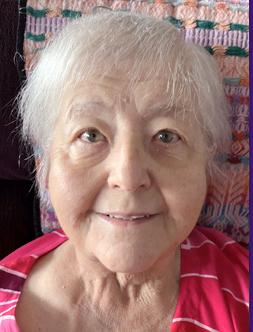


Emergency Task Group created, resources developed to support emergencies and escalation
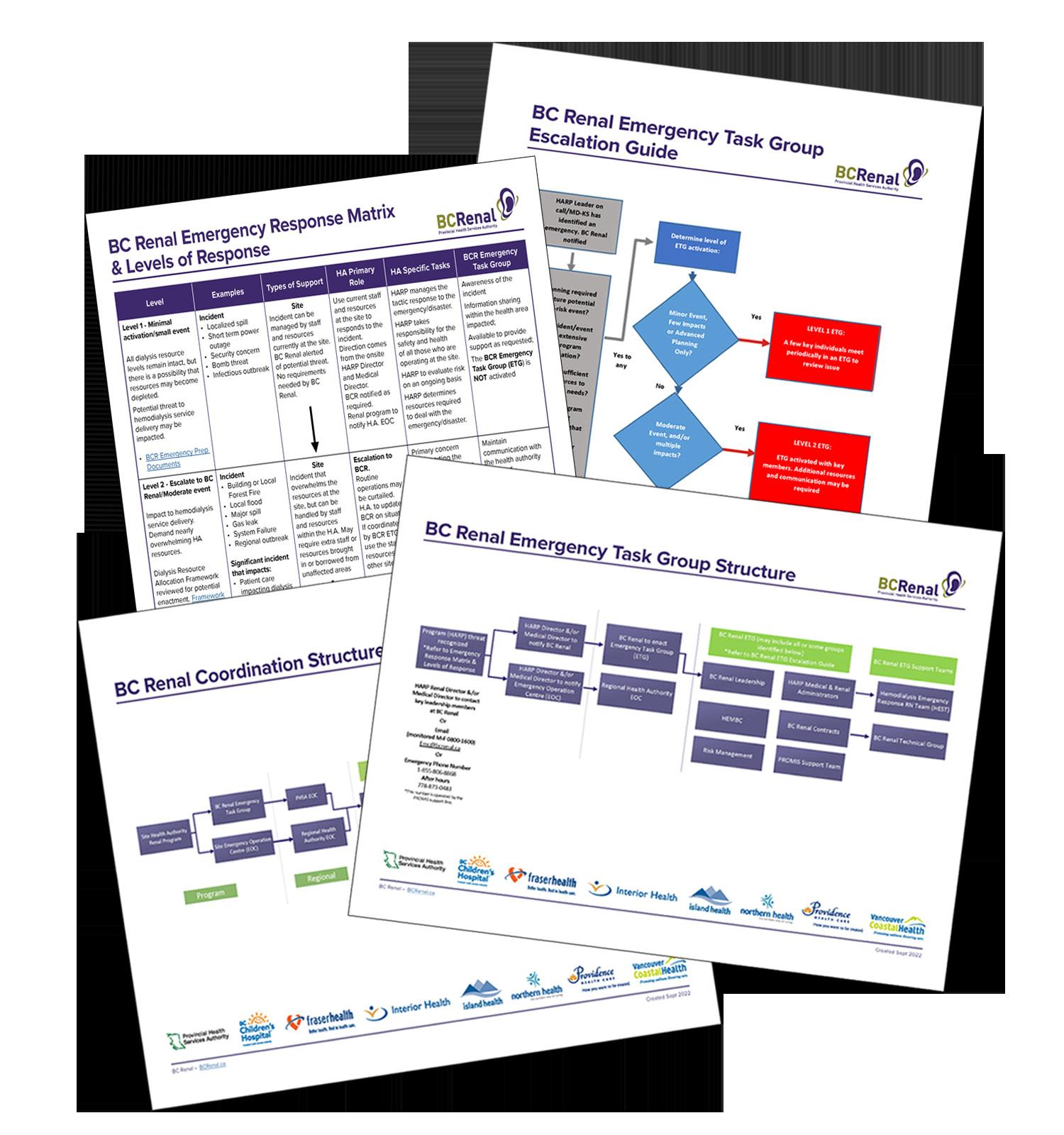
A key element of emergency management within BC Renal is to foster a culture of preparedness. This year’s priority focused on reviewing current emergency plans and promoting awareness for when escalation to special measures is needed. A key initiative for the BC Renal Emergency Management Committee included the establishment of an Emergency Task Group and supporting documentation. The group includes members who can support renal programs that experience disruptive events, emergencies and disasters, in a manner that minimizes impact and maintains delivery of health services.
Emergency Escalation Documentation includes:
BC Renal Emergency Response Matrix & Level of Response
Renal Emergency Task Group Escalation Guide
Renal Emergency Task Group Structure
BC Renal & Health Authority Coordination Structure
“It is incredible to see the passion of work within the Emergency Management Committee, all working towards preparing for unexpected events together. Being in emergency management, it is amazing to see how we can all think alike and build resiliency through health emergencies.”
Aashmali Patel, Health Emergency Management BC
• Enhancement of PROMIS Emergency Management Module to include introduction of a new interactive Home Therapies Map that visually displays home based dialysis patient locations and modality specific patient lists, with the Renal Patient List able to create and export modality specific emergency patient lists (HD, HHD, PD & CKD)
• Updated BC Renal Emergency Management Plan with EMC and HEMBC partnering for planning and response processes including: governance, statutory and regulatory compliance, organizational response structures and resources within the organization.

In the event of an emergency, collaborative management between BC Renal and the regional health authorities ensures an integrated and comprehensive approach across multiple regions. Our committee has worked hard to help address the process of communicating decisions, directions, and information sharing, and we have identified emergency linkages between BC Renal, the health authorities, and Health Emergency Management BC (HEMBC).
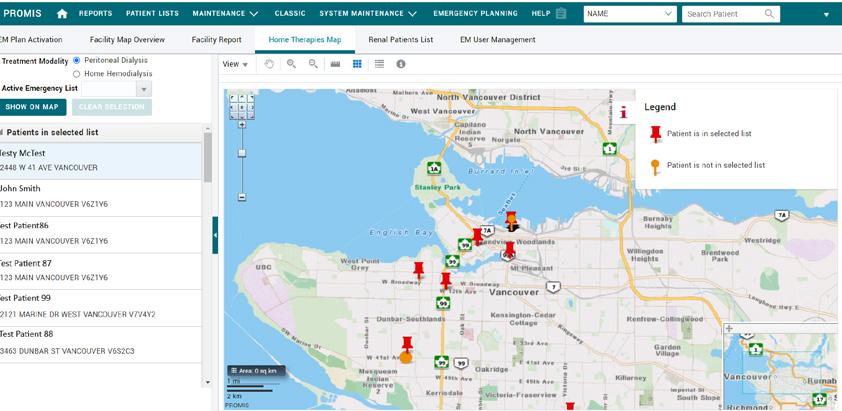
The BC Renal Facilities & Equipment Planning Committee helps with processes for planning provincial facilities and equipment needs, reviewing and prioritizing requests, submitting recommendations for approval, and tracking and reconciling associated funding approvals. In 2022, the committee continued its work to support several projects in moving forward in BC.
One example is the Powell River/qathet Community Dialysis Unit. Providence Health Care (PHC) was able to expand the unit from three to six hemodialysis chairs, doubling its capacity so now 12 patients can receive care three times per week.
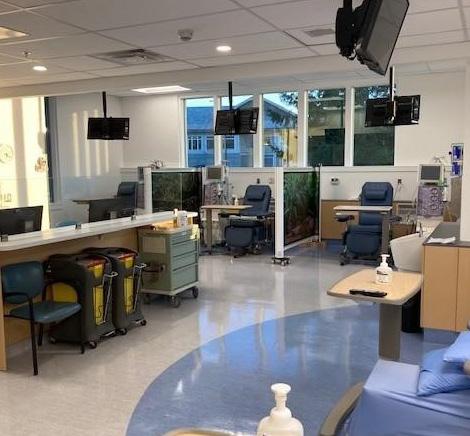
Powell River is a small community within the northern part of the Sunshine Coast, located on the traditional homelands of the Tla’amin First Nation. The area is quite remote as it’s only accessible by ferry or plane. As a result, it’s challenging to have enough staff in the unit more than three days per week as there are a limited number of dialysis trained nurses in the
region and regular practice is required to maintain the skillset. When there are vacancies, PHC typically flies or ferries staff to Powell River to fill shifts.
With a growing number of Powell River kidney patients needing facility-based dialysis treatment, and limited ability for these individuals to access dialysis in other communities, it became clear that there was a need to increase the number of chairs in the unit rather than increase the number of days the unit was open. The community had long been asking for expanded services, as there had been patients who were taking ferries to other communities or having to relocate to receive dialysis.
The unit is located within the hospital in Powell River, which was recently re-named qathet General Hospital in a step towards Indigenous reconciliation. The unit has also been re-named qathet Community Dialysis Unit in alignment with the change.
Primarily funded by BC Renal, through Ministry of Health capital funding, the unit also received contributions from the Powell River Hospital Foundation, the Powell River Hospital District, and Providence Health Care.
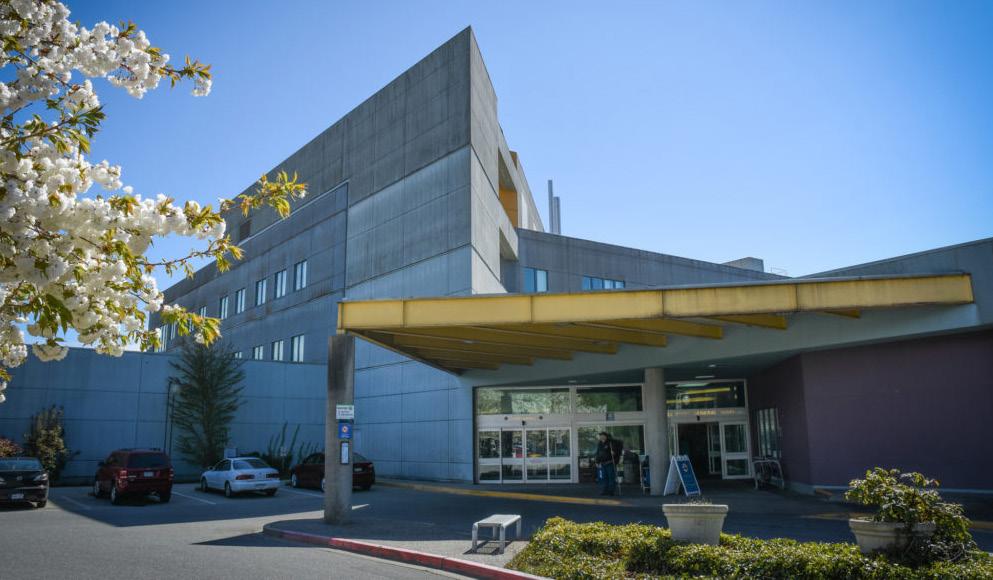
Renal Facility & Equipment Funding and Process
Committee background: Terms of reference
With the support of the BC Renal Facilities & Equipment Planning Committee and the various partners, the expanded qathet Community Dialysis Unit was relocated within the hospital to a larger and brighter space where patients in the area will be able to receive services close to home for years to come.
BC Renal Facilities & Equipment Planning Committee, and Director, Renal, Providence Health Care
 Julie Lajeunesse Member,
Julie Lajeunesse Member,
In 2022, the BC Renal Glomerulonephritis (GN) Committee oversaw the launch of a new BC Renal web page for patients focused on addressing the needs of approximately 6,000 British Columbians living with GN. Many of these individuals would typically look to information based in the United States and elsewhere, which isn’t always relevant.

GN refers to a group of diseases that cause inflammation and damage to the parts of the kidney that filter blood (called glomeruli). Only a small percentage of people with GN will have kidney failure and need dialysis or a kidney transplant. The remaining people are successfully treated with medication and lifestyle changes.
The new web page was informed by input from several patient partners. It’s a first step with plans underway to introduce a “web page 2.0” with more features in 2023.
36 Renal News- Annual Edition 2022
Web
info & resources:
Project
Manager, Glomerulonephritis Committee
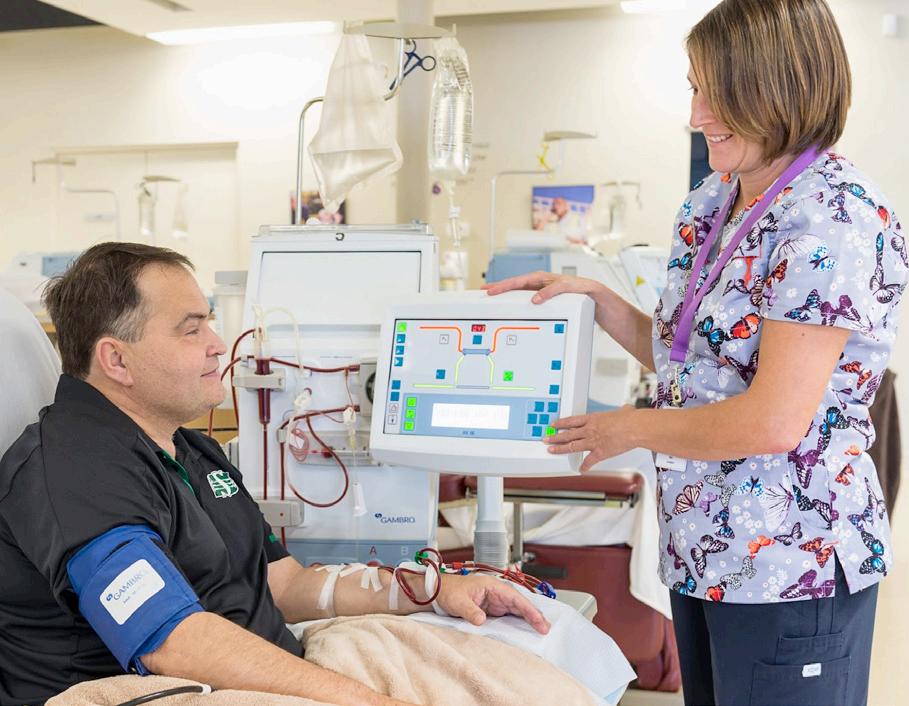
The development of provincial hemodialysis (HD) quality indicators has been part of the BC Renal Hemodialysis Committee workplan for several years, with detailed work guided by a group of nephrologists, HD staff and patient partners, and supported by BC Renal statisticians.
The first step was to identify key indicators important to HD care. This was done following a review of similar indicator work done at the national level, as well as reviewing indicators developed by BC’s health authority renal programs (HARPs). Five key indicators were identified as their initial set.
With the indicators developed, the next challenge was to find ways to display them in a format meaningful to administrators and staff at provincial, HARP and HD unit levels. This was a significant challenge, given that BC includes six health authority renal programs and 42 HD units (13 incentre and 29 community units).
They initially used an Excel dashboard as proof of concept, but quickly realized it did not allow them enough flexibility. However, it was helpful for narrowing down the display of HD data, while simultaneously exploring Business Intelligence tool options best suited for this and other program reports. Feedback from administrators and staff was critical in the development of these indicators and how they should best be displayed to help identify areas of potential improvement.
With leadership from the BC Renal data analytics team, they are in the process of introducing the new HD quality indicators report as an interactive dashboard hosted on PROMIS. The new format will enable data to be viewed in multiple ways and be applicable at provincial, HARP and HD unit levels. Administrators will be able to easily print plots of their data to aid in internal program discussion or presentations. This new format will be in place starting in the 2023/24 fiscal year.
“Data is one of the most powerful ways to identify how patient care can be improved. But it needs to be presented in a way that is meaningful in order that it be acted upon. Our new interactive dashboard/ report supports the latter.”
Yuriy Melnyk, Project Manager, Hemodialysis Committee
• Continued to review critical incidents and supply shortages that impact HD care, making recommendations and taking action to minimize the impact on patients and staff

• Successfully recruited and oriented three patient partners to participate in the HD Committee
• In collaboration with the PROMIS team and BC Renal data analytics, continued work on vascular access quality indicators, including the addition of “catheter reasons” to PROMIS and developed enhanced/ new PROMIS reports (enhancement of prevalence rate report and development of new reports for incidence and transonic flow measures)
Working with a passionate multidisciplinary HD group and BC Renal data analytics to identify and display meaningful HD indicators has been challenging but exciting as we envision the potential for data to support changes in the way HD care is delivered in BC.
Williams Project Manager, Hemodialysis Committee
Committee background: Terms of reference
JanetCurriculum to Recruit Acute Starts to Home Dialysis (CRASH) projectimproving the journey home
“Acute dialysis start” patients are those who start dialysis treatment with little to no pre-dialysis care. As a group, these patients have historically had lower transition rates to home therapies (home hemodialysis or peritoneal dialysis) due to a number of barriers, including lack of specific home therapies education and missed or delayed identification of candidates.
The Curriculum to Recruit Acute Starts to Home Dialysis (CRASH) project, which was completed in 2021, provided a better understanding of the characteristics of the “acute dialysis start” patient population and who would most benefit from a systematic approach to education.
In 2022, evaluation of the project took place and a report on the findings was presented to BC Renal home dialysis committees. The findings showed that applying a structured curriculum for early modality education, with expedited assessment, enhances successful home therapies transitions.
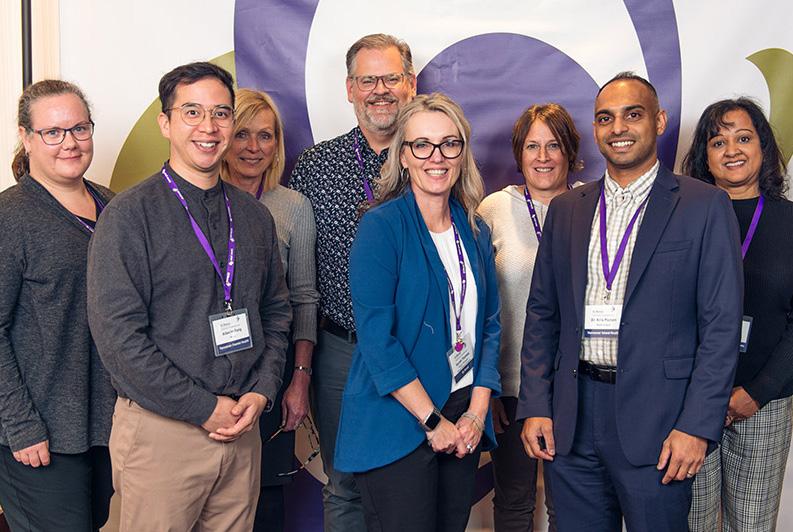
The report recommended implementation of learnings from this project to support an expanded, standardized approach to
identification of patients for targeted structured home dialysis education as well as metrics for ongoing evaluation.
The complete findings of the project will be included in a manuscript for peer-reviewed publication.
• Developed the Home Hemodialysis Quality Indicators Report
Having completed the CRASH project, we are now able to provide new dialysis patients - without previous kidney careaccess to a curriculum that grants the same opportunity to learn and be reviewed for home therapies as their peers. We continue to strive to ensure fair and equal access to home therapies for all BC kidney patients.


Home blood pressure monitoring has emerged as the gold standard for diagnosing hypertension and assessing blood pressure control. Benefits are numerous, including convenience, accessibility, and effectiveness at lowering blood pressure – thereby improving outcomes and reducing kidney and heart disease.
With oversight from the BC Renal Kidney Care Committee, the Home Blood Pressure Monitoring initiative was guided by a working group of nephrologists, kidney care clinic staff, patient partners and The Kidney Foundation of Canada - BC & Yukon Branch.
Between July 2020 and April 2021, a range of educational resources were developed and distributed to BC’s 14 kidney care clinics as well as made available on BC Renal’s Kidney Care (Non-Dialysis) web page under the Kidney Care Clinic Guidelines menu item.
To remove any financial barriers, the committee worked with The Kidney Foundation on a pilot project to expand an existing program that provides eligible
patients with a home blood pressure monitor.
In 2022, the committee evaluated the initiative, with metrics of success added to the semi-annual Kidney Care Clinic Indicator Report. In addition, province-wide surveys were conducted to obtain both patient and staff perspectives.
The results of the evaluation demonstrate a successful launch and increased awareness among staff and patients about the importance of home blood pressure monitoring.
Areas for improvement were also noted, including adjustments to the written patient resources (breaking the content in the patient guide into multiple handouts) and promoting the teaching and documentation of customized “target blood pressures” for each patient for their reference and follow-up as needed.
In general, the patient response to home monitoring was positive and most patients reported following through with kidney care clinic team recommendations for frequency and timing.
The working group reviewed the evaluation results, and adjustments to the patient and staff resources are in progress. The
Kidney Care Committee will continue to monitor home blood pressure indicators on the semi-annual indicator report and take action as needed to increase uptake of this program and adjust patient and staff resources.
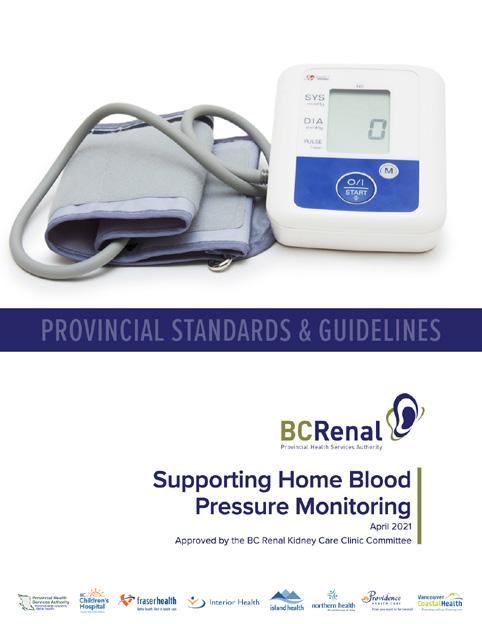
“The most rewarding aspect of working on this initiative was bringing together the voices of nephrologists, kidney care clinic staff, patient partners and The Kidney Foundation of Canada - BC & Yukon Branch to promote home blood pressure monitoring among kidney care clinic patients. There was an obvious shared interest and desire amongst all participants to work together to improve the care of patients.”
Janet Williams, Project Manager, Kidney Care Committee• Continued implementing and evaluating enhanced pre-transplant clinical processes, tools and resources in kidney care clinics, regional transplant clinics and provincial transplant centres (Transplant First initiative)
• Continued offering six Patient Education Webinars per year for BC’s kidney care clinic patients and family members

• Continued implementing and evaluating virtual care in BC’s kidney care clinics, including recommendations for optimal integration into care delivery
Web info & resources: BCRenal.caHealth ProfessionalsClinical ResourcesKidney Care (Non-Dialysis)
Home blood pressure monitoring has many benefits, including supporting kidney care clinic patients to have more control of their own health and helping them know what action to take if their blood pressure is outside their target range. Controlling blood pressure is an important component of kidney care and home monitoring has been shown to be an effective way to promote blood pressure
Committee background: Terms of reference
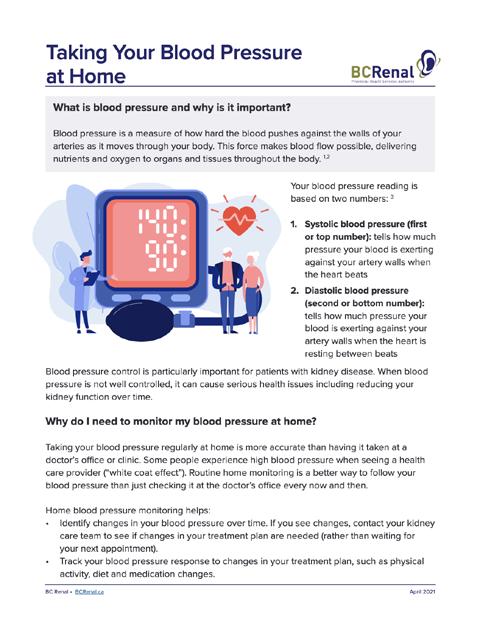 Dr. Mike Bevilacqua Chair, Kidney Care Committee
Dr. Mike Bevilacqua Chair, Kidney Care Committee
The aim of the Integrated Palliative Nephrology Project was to enhance the capacity of kidney health professionals to embed a palliative approach to advanced chronic kidney disease patient care. This was achieved by changing culture through sharing of knowledge, training, and developing evidence-informed palliative resources.
In 2022, the BC Renal Palliative Care Committee focused on evaluation of the Integrated Palliative Nephrology Project two years after implementation. The goal of the evaluation was to assess whether the project has enhanced the capacity of health professionals to adopt a palliative approach to kidney care and if practice culture has changed. Evaluation methods included patient and health professional surveys, interviews and focus groups.
Evaluation results show improved health professional knowledge and comfort in using a palliative approach to care and improved ability to have Advance Care Planning discussions. Provincial quality metrics have shown an increase in assessments using the Edmonton Symptom Assessment Scores and increased Advanced Care Planning
“I am greatly impressed by the level of compassion, care, and tenderness, with which members approached the many tasks of this committee. I feel privileged to join the group, and hope to emulate the diligence of the membership. To this is added an extensive knowledge of the subject-matter – wellness, illness, therapy and caring.
Backed by research at the forefront of knowledge, careful statistical assessments of programs, the committee is wellplaced to advance the treatment and compassionate care for all renal patients in the later stages of illness.”
Neville Avison, Patient Partner, Palliative Care Committee
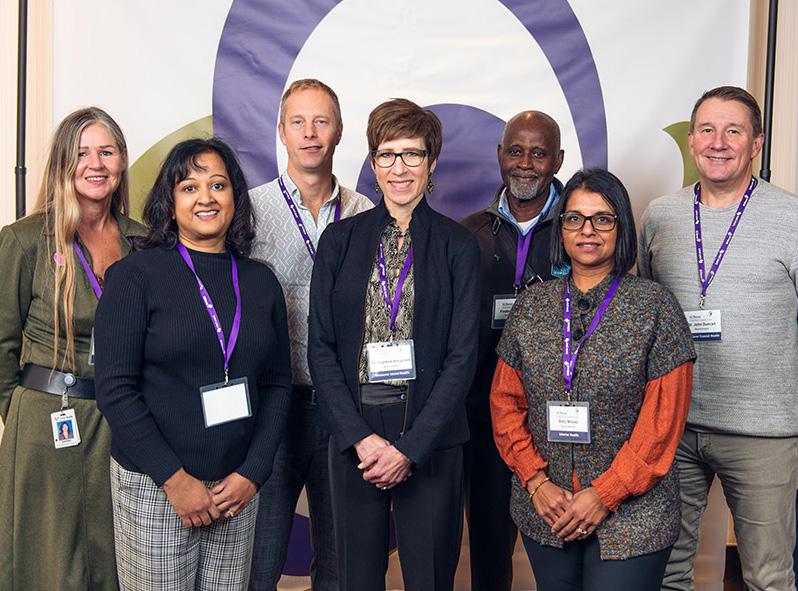
activities as reported in PROMIS. Health professionals and patients who were aware of the Integrated Palliative Nephrology resources described them as being of high quality, thorough, and relevant to their needs.
Patients who participated in the evaluation process indicated they are generally satisfied with the palliative approach to care and feel an appropriate amount of information has been communicated with them based on their current medical state.
Based on evaluation findings, there is an indication of a shift in the openness to adopt a palliative approach to kidney care by both health professionals and patients and their families. Results from this evaluation will be used to inform a provincial palliative education strategy to support the practices of kidney health professionals in the future.
• Two new vice chairs appointed to the Palliative Care Committee
• Developed and disseminated fillable ‘My Symptom Checklist’ in multiple languages for patients
Created and disseminated ‘My Symptom Checklist’ videos for patients and clinicians

Now that the Integrated Palliative Network evaluation has been completed, I look forward to using this incredibly rich information. This will inform our framework supporting our team’s ongoing development of expertise in a palliative approach to care. I am honoured to engage in this – our patients have said this is important, our teams know this is important.
Sherri Kensall Vice Chair, Palliative Care CommitteeWeb info & resources: BCRenal.caHealth Professionals Clinical ResourcesPalliative Care
Committee background: Terms of reference
Peritoneal dialysis (PD) is associated with significant medical, psychosocial and economic benefits. As BC’s regional health authority renal programs seek to expand their home dialysis patient population, it’s useful to identify trends in prevalence and attrition, while monitoring patient outcomes.

A new home dialysis quality indicators reporting tool is enabling programs to access standardized provincial, health authority and program-specific data at their fingertips. The tool can support provincial and regional quality reviews to gain better understanding of the successes and challenges each program faces and prioritize quality improvement work to support best practice.
The tool, which was developed in June 2022, is used by home dialysis programs across the province to continue to support quality care.
• Evaluation and outcomes of a five-year assisted PD program
The provincial PD Assist program has allowed patients to access and potentially extend their peritoneal dialysis lifespan, through avoidance of in-centre hemodialysis, by over 13 months. Importantly, many patients on long-term PD Assist were able to use PD as their preferred kidney replacement modality at home until they reached end of life. We are encouraged by these results and hope to see continued benefits for patients and their families as the program moves forward.
Web info & resources: BCRenal.caHealth ProfessionalsClinical ResourcesPeritoneal Dialysis
Committee background: Terms of reference
Dr. Shannon Wong Home Dialysis Fellow, BC Renal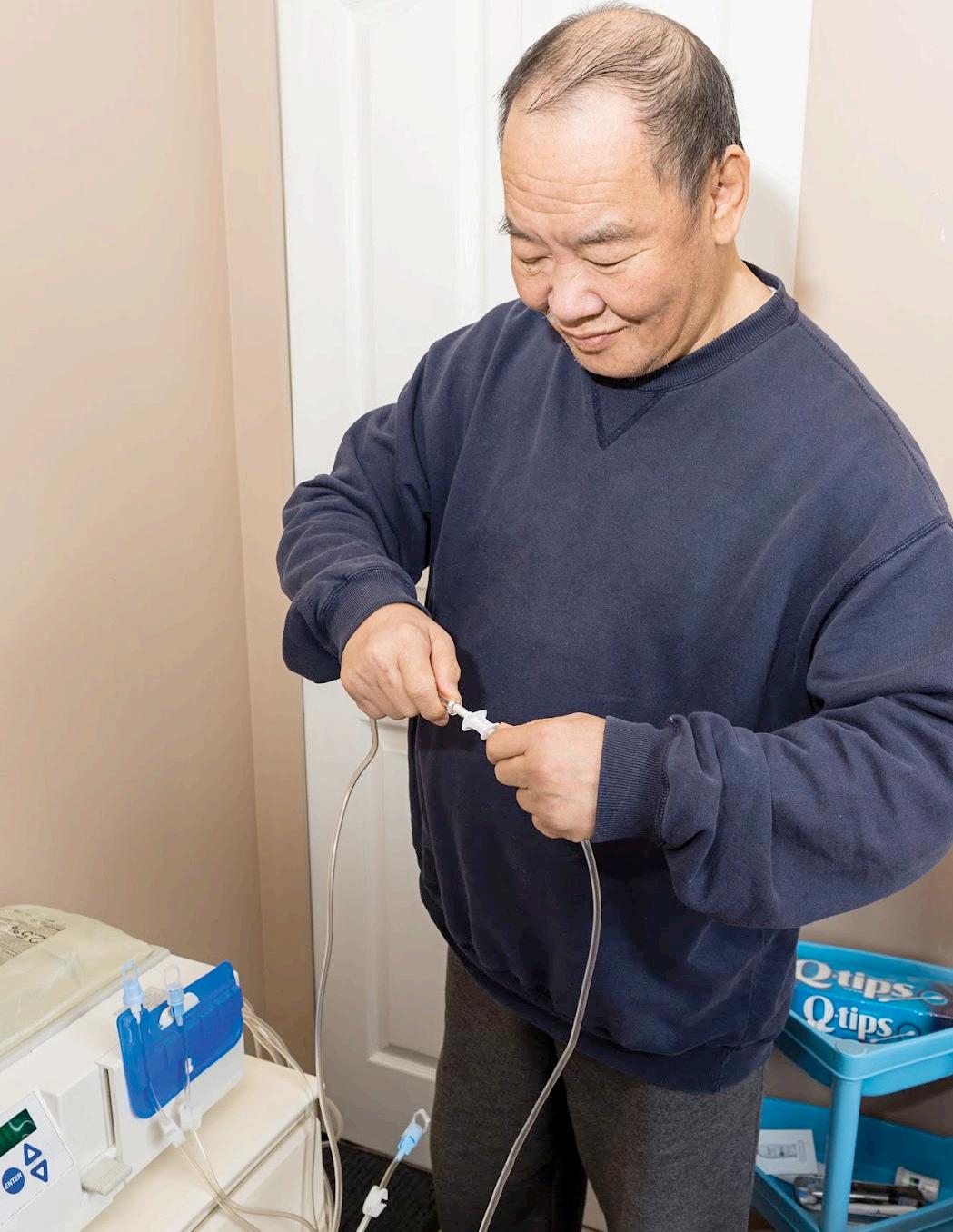
expands oral nutritional supplement program for transplant patients
The BC Renal Pharmacy & Formulary Committee recently expanded its oral nutritional supplement program to include kidney transplant patients for as long as needed. Historically, coverage for these patients extended up to 90 days posttransplant. A 14-month effort made a trial of this expansion possible, and the work directly benefited 155 patients during the trial period.
Committee member Dani Renouf, who is also a member of the BC Renal Dietitians Practice Group, led the initiative in collaboration with dietitian group members Anja Webster and Christy Adair, with support from nephrologist Dr. Michelle Wong, BC Renal statistician Sophia Zheng and the Pharmacy & Formulary Committee.
An evaluation of the trial took place, which demonstrated that through stewardship, cost-saving measures, and tracking of supplement usage, transplant patients would be able to have sustainable access to nutritional supplements that benefit their health outcomes, while keeping costs of the program within check.

• Created a non-formulary medication reimbursement policy
• Changed Cinacalcet adjudication process
• Continued to review new and existing medications
Working with other committees and professional groups is certainly key for me to understand their goals and objectives, and to align better with their projects so our joint outcomes are truly more effective than what each can achieve independently.
Renouf Member, Pharmacy & Formulary Committee, and Renal Dietitians Practice Group


Developed Emergency Staffing and Sustainability
regional health authority renal programs
In 2022, the Renal Administrators Committee played a key role in developing an Emergency Staffing and Sustainability Workforce Strategy focused on hemodialysis services. An overarching objective of this strategy is to ensure the BC Renal network can stabilize and better support our hemodialysis workforce across the province.
Short term actions aim to provide agile emergency staffing support to regional renal programs, while over the long term, the Renal Administrators Committee will work to define alternative human resource models for care. This will be to improve sustainability and scalability of hemodialysis services to meet future growth needs.
• In coordination with the BC Renal Emergency Management Committee and the Hemodialysis Committee, created several resources to ensure hemodialysis operating needs are
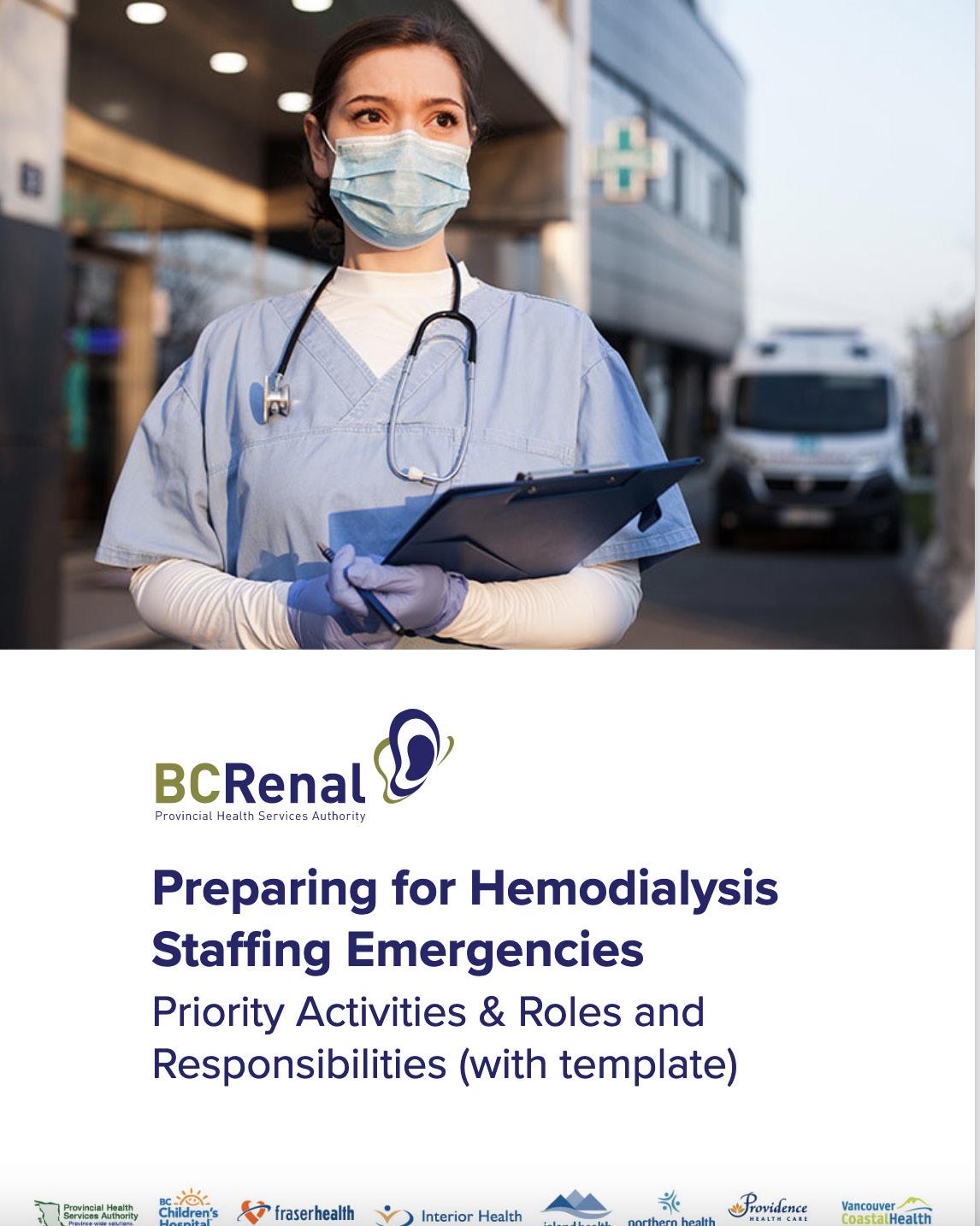
met in a staffing crisis, for example, Preparing for Hemodialysis Staffing Emergencies: Priority Activities, Roles & Responsibilities
Web info & resources: BCRenal.ca
Health Professionals
Clinical Resources
Committee background: Terms of reference
I would like to acknowledge and thank the members of the Renal Administrators Committee for their efforts this last year, as we worked through the challenges of creating feasible staffing contingency plans in the face of a health human resource challenge the size of which we have never faced before. The willingness of the group to come together, share their wisdom and experiences, and evaluate various options, has enabled us to co-create a package of resources that can be implemented in any corner of BC and will enable us to continue to work together to meet the needs of the renal communities we
Chair, Renal Administrators Committee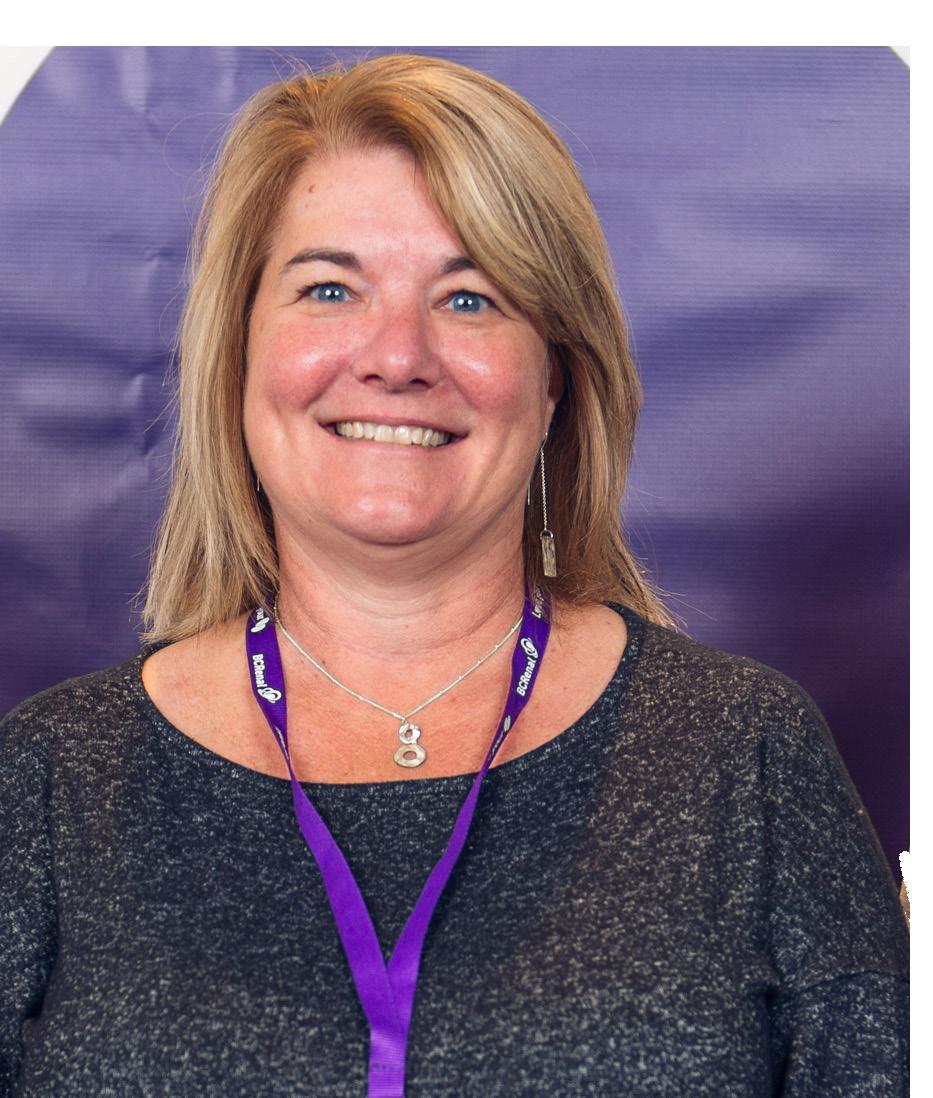


Group expertise supports procurement of HD machines and reverse osmosis systems
In 2022, the Hemodialysis (HD) Technical Group focused on providing technical expertise and support to BC Renal and PHSA Supply Chain technical procurement.
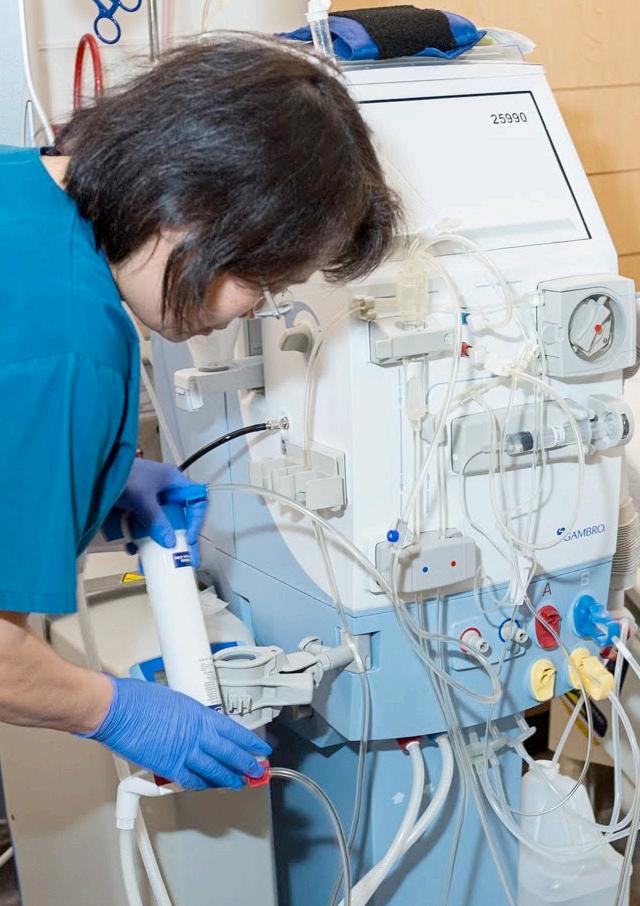
Specifically, the group’s efforts focused on the development and administration of the Request for Proposals for HD machines, subsequent vendor proposal evaluation, and contract negotiations with potential future vendors.
The group also developed and implemented a comprehensive vendor management process for one of the key suppliers of reverse osmosis systems to BC’s regional health authority renal programs.
• Working to strengthen and expand its vendor stewardship across other key technology suppliers
Over the past year, the Hemodialysis Technical Group has continued to consolidate its role as a critical advisory body on technical issues for existing equipment, as well as the procurement of new technologies and equipment through various requests for proposal processes led by the BC Renal Business Operations team and the PHSA Supply Chain team.
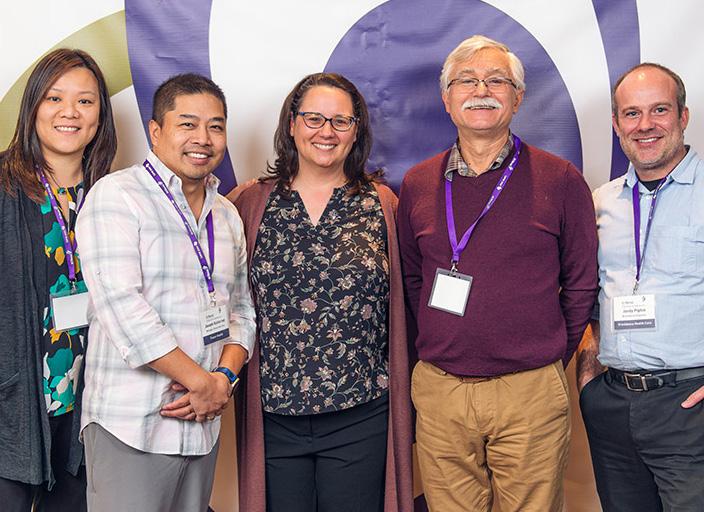 Yuriy Melnyk Project Manager, Hemodialysis Technical Group
Hemodialysis Technical Group members attend Strategic Planning Day 2022
Yuriy Melnyk Project Manager, Hemodialysis Technical Group
Hemodialysis Technical Group members attend Strategic Planning Day 2022
Launch of SharePoint site better supports BC’s nurses who are home hemodialysis educators
To better support the new generation of nurses who are home hemodialysis (HHD) educators, a BC Renal Home Hemodialysis Educators (HHDE) SharePoint site was launched in July 2022.
The goal of this new site is to ensure all HHD educators in the province have access to the most current nursing resources essential to home hemodialysis practice in BC.
The site provides provincial standardized information to assist new HHD educators as they start in their role. These documents also support experienced HHD educators as they strive to maintain quality standards in patient training, vendor management and maintenance of patients on home hemodialysis.
• Development of a mentorship program for home hemodialysis educators
“It has been a wonderful experience to work with all the home hemodialysis educators, share our program history and success stories, and provide a safe space to ask questions. The HHDE mentorship program has built greater awareness of each other’s experiences and highlighted the importance of continual learning and professional development.”
Sarah Thomas, HHDE Group Mentorship Program LeadWeb info & resources: BCRenal.caHealth Professionals Clinical ResourcesHome Hemodialysis
Group background: Terms of reference
Home hemodialysis has been a long-time passion for me and now I’m watching the new generation of home hemodialysis educators start their journey into hopefully a long and fulfilling career. It is exciting to see many new faces in our HHD Educators Group, particularly in the last two years. With the creation of the SharePoint site and our mentorship program, we can continue to provide support and guidance for not just our new HHD educators but even our experienced ones, to ensure our patients ultimately receive the best care provincially.
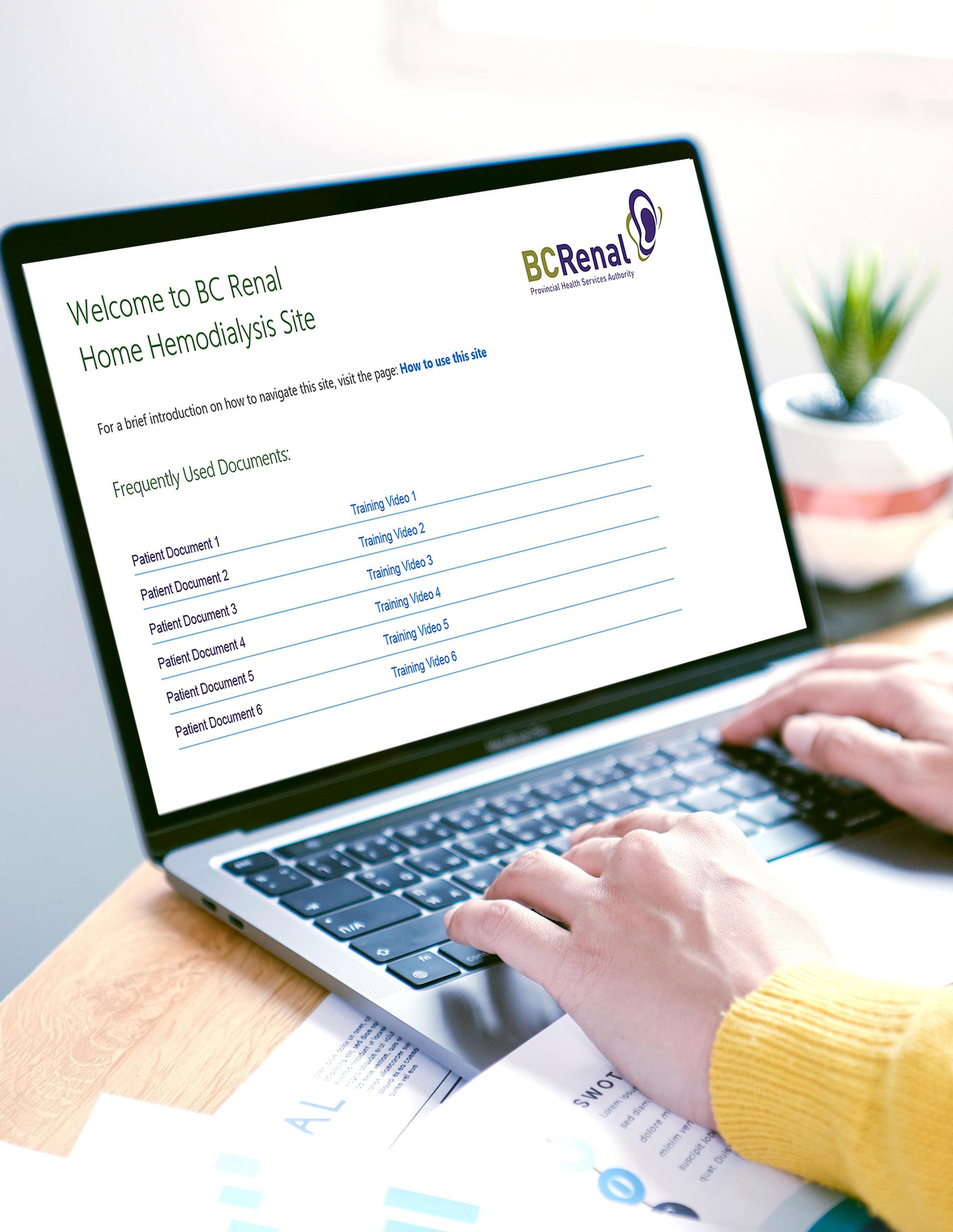 Angela Robinson Chair, HHD Educators Group
Angela Robinson Chair, HHD Educators Group
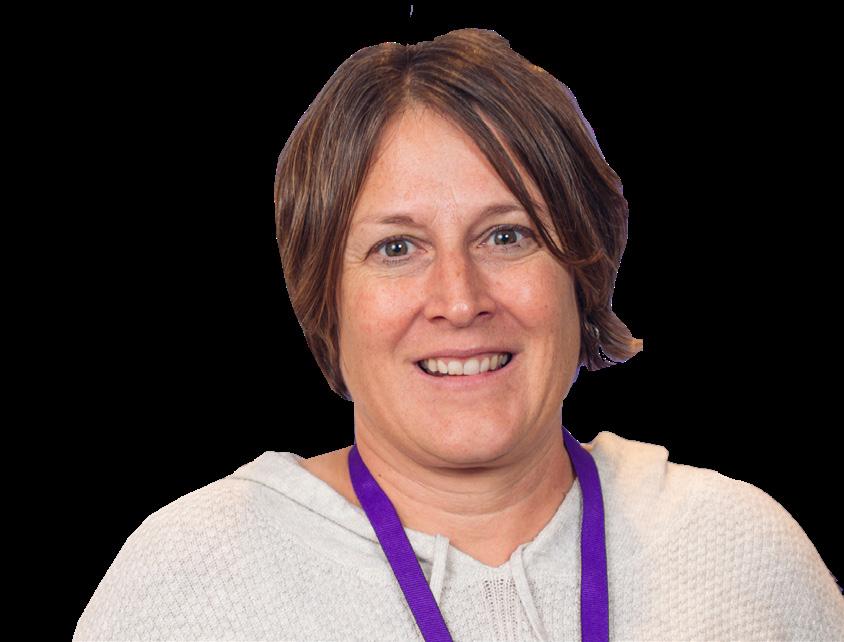
Instructional videos created to support emergency preparedness for PD Assist patients and families
The COVID-19 pandemic and recent natural disaster events, including powerful and destructive wildfires and storms, temporarily caused PD Assist Program service disruptions. This led the BC Renal PD RN Group to focus on improving emergency planning.
Instructional videos were developed outlining basic PD Assist activities of setting up and dismantling continuous cycler PD machines (Baxter Home Choice and Amia). These resources provide simple step-by-step support for patients and family caregivers in the event of any emergency PD Assist service disruptions. The videos are also useful for training nonPD Assist Program patients, PD staff and hospital staff.
Patients who need additional short or longer term help to maintain their automated peritoneal dialysis care at home may be eligible to receive support from the PD Assist Program. The program provides patients with daily home visits from trained caregivers to help with non-nursing tasks related to their continuous cycler PD machines. These may include setup, dismantle and disposal of supplies.
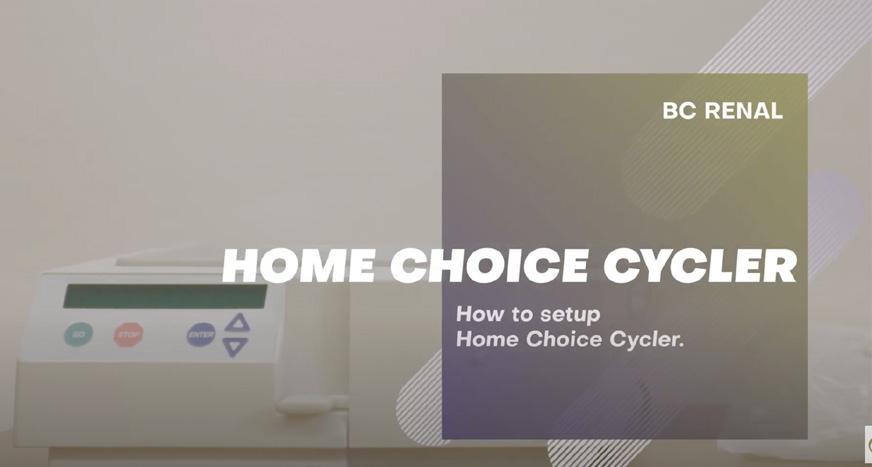
• Developed a bimonthly “PD Connect” information bulletin to support practice and vendor communication to PD RN’s between group meetings
• Developed new standardized PD procedures and reviewed existing procedures to support clinical practice in BC Web info & resources: BCRenal.caHealth Info Kidney CarePeritoneal Dialysis
Many thanks to Fraser Health PD program staff for their energy and time in developing these videos.
Group background: Terms of reference
By having easily understandable and accessible resources, such as the PD Assist videos, we can support patients and caregivers to safely perform peritoneal dialysis at home. These videos not only provide reassurance to patients and caregivers that they are setting up and dismantling the cycler machine correctly, but they also serve as a consistent resource that can be used to supplement their training and help maintain competency.
Katie Cave Patient Care Coordinator, Peritoneal Dialysis, Abbotsford Regional Hospital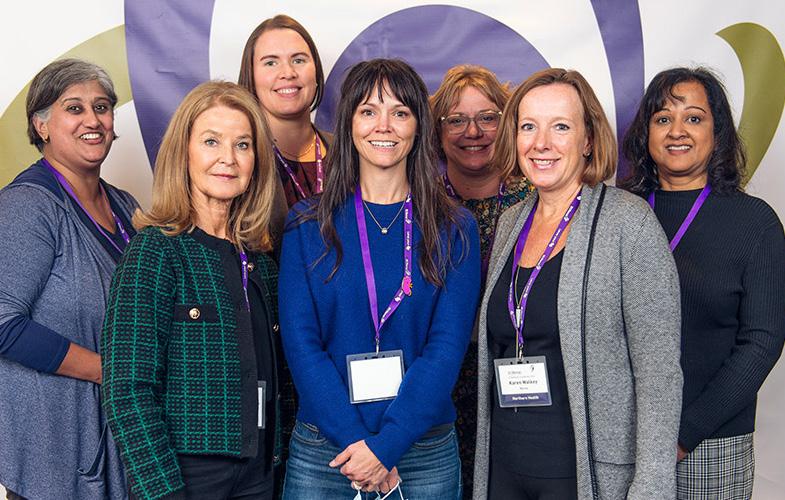 PD RN Group members attend Strategic Planning Day 2022
PD RN Group members attend Strategic Planning Day 2022
“Come Cook with Us” virtual classes launched on Kidney Wellness
The BC Renal Dietitians Practice Group created the first dietitian-led series of virtual cooking classes, Come Cook with Us, on the Kidney Wellness Hub. The hub is a new online community and dynamic repository of customized kidney wellness information to support kidney patients and caregivers, developed by The Kidney Foundation of Canada - BC & Yukon Branch. The first class drew in over 100 registrants nationally.
With participants learning in the comfort of their own homes, multiple delicious and nutritious kidney-friendly recipes were featured and the session also included a fruitful question and answer period between participants and dietitians, focused on nutrition. The class was broadcast live via Zoom and is also available for future viewing through a recording. The success of the first class has sparked planning of further sessions.
• In collaboration with the BC Renal Pharmacy & Formulary Committee, expanded the inclusion of nutritional supplements for post-transplant kidney patients beyond 90 days to as long as needed; costs will be covered for eligible patients through the BC Renal pharmacy formulary
• Continued ongoing expansion of nutrition handouts available on BC Renal’s Diet web page, with translations into multiple languages to increase culturally sensitive resources for patients, and added Chinese kidneyfriendly recipes to the page
• Dietitians in Fraser Health created and managed a bike loan program for patients on home hemodialysis to improve access to exercise equipment and to increase awareness of the benefits of being active; this successful program then expanded to patients on peritoneal dialysis, and bikes are scheduled to be available for patients in some community dialysis units in 2023
“Witnessing the passion and collaboration within the Renal Dietitians Practice group and with other committees with the common vision to attain successful patientcentred nutrition care and initiatives, has been extremely inspiring and a privilege to be a part of.”
Tanya Choy, Interim Chair, Renal Dietitian Practice Group
Web info & resources: BCRenal.caHealth Info Managing My CareDiet
Group background: Terms of reference

Renal educators continued to support initiatives addressing workforce challenges in hemodialysis units
During the past year, the Renal Educators Group (REG), which aims to standardize, enhance and foster excellence in the delivery of hemodialysis (HD) nursing care, provided support to the various components of BC Renal’s Dialysis Workforce Strategy. This included a comprehensive review of and input into the toolkit to address shortages of staff in HD units, as well as emergency staffing guidelines and processes.
In addition, they participated in the development of a job description and standard operating procedures for the proposed role of Hemodialysis Emergency Support Team registered nurses, who would provide emergency response support across health authorities when needed, and also act as a resource and mentor within their hemodialysis units.
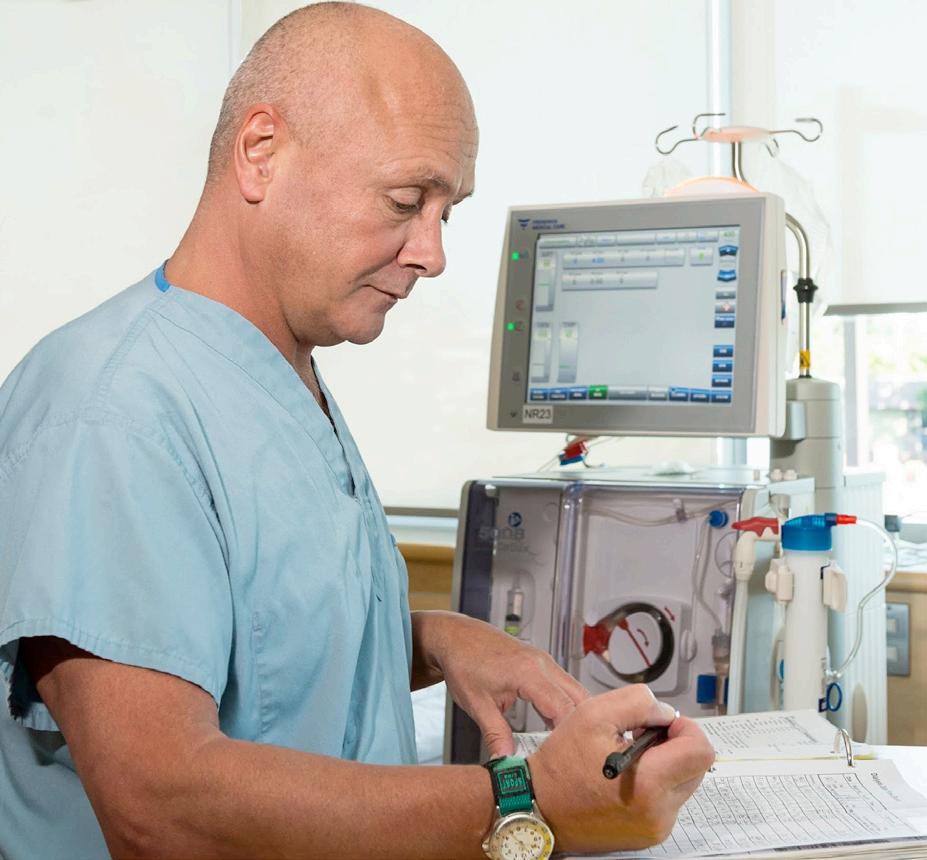
Web info & resources:
BCRenal.caHealth Professionals Clinical ResourcesHemodialysis
Committee background: Terms of reference
“The provincial Renal Educators Group has been pivotal in supporting the development of the emergency staffing strategy. This group recognizes the importance of provincial collaboration to provide the highest quality of care for those living with kidney disease and have collectively made recommendations that will support our renal teams in the event of an emergency. The dedication and knowledge sharing from this group has been truly remarkable.”
Sarah Thomas, Chair, Emergency Management CommitteeProvincial hemodialysis educators have always played a key role in leading and supporting their frontline teams and patients. With the increasing challenges in human resources across the province, the educators are becoming an ever more vital resource that the regional renal programs rely on to continue to provide the highest quality care to people living with kidney disease in BC.
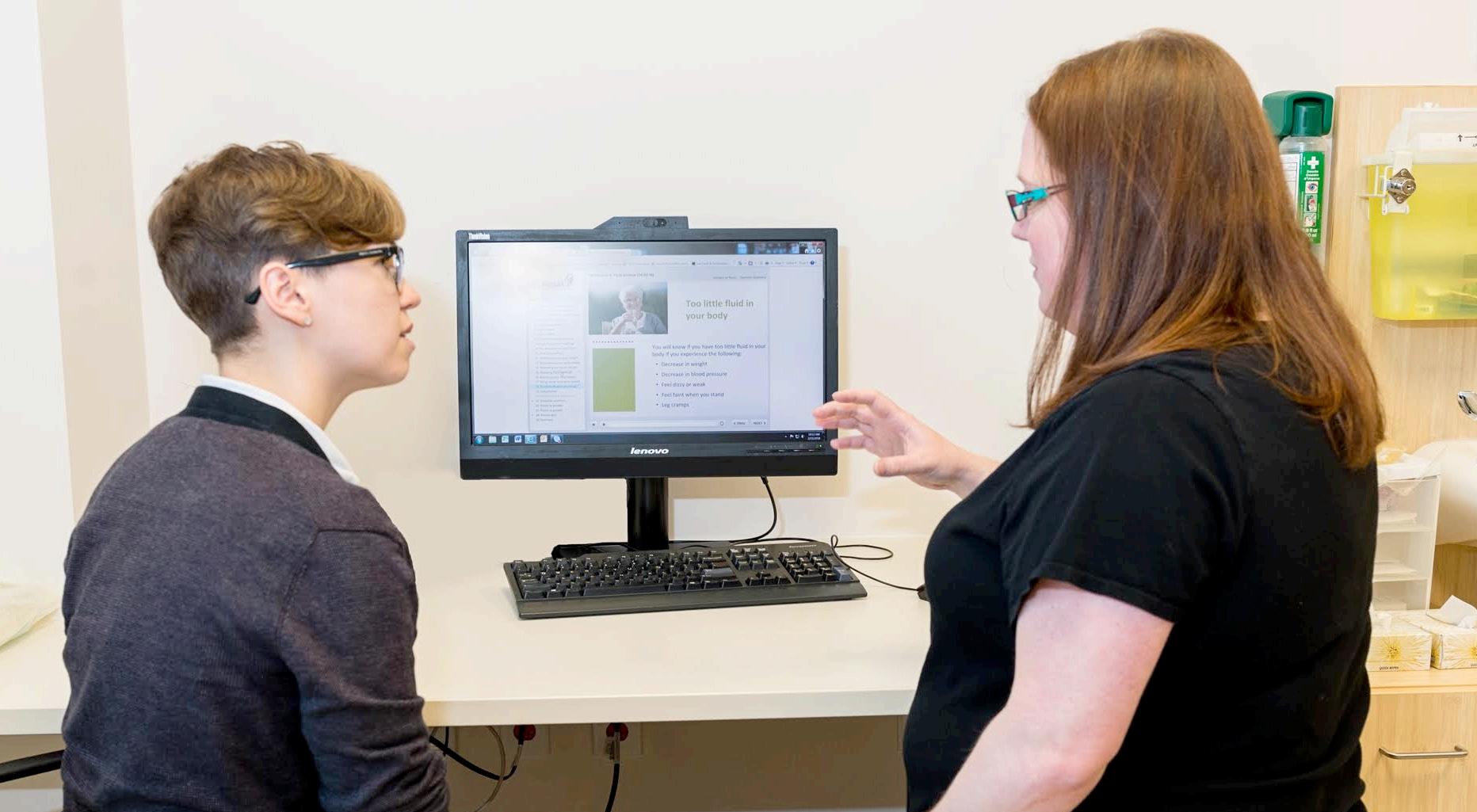 Yuriy Melnyk Project Manager, Renal Educators Group
Yuriy Melnyk Project Manager, Renal Educators Group
The BC Renal Social Work Professional Practice Council has continued to advance BC Renal network social work practice, education, processes, guidelines and research initiatives for optimal psychosocial and kidney care.
BC Renal’s vision is “People with kidney disease in BC have access to the highest quality, person-centred care, enabling them to live their lives to the fullest.” Social workers across the province provide critical support to kidney patients facing access challenges for their life sustaining therapy due to their geographic location, financial barriers and lack of transportation, as well as advocate for continual improvement.
This past year, the social workers from Fraser Health East, with consultation from Fraser Health risk management personnel and the ethics department, organized a series of meetings with their manager, director, social work clinical practice lead and transportation-related community partners, as well as the provincial renal social work group, to tackle the issue of transportation.
They have found it rewarding to work with a multidisciplinary team at various levels of the renal network, with a shared understanding of the importance of the project. The work is still in the preliminary stages, but a needs assessment questionnaire to renal social workers across the province shone a light on the gaps in available resources for medical transportation, and that this is a challenge across the province.
The Fraser Health East social workers, in partnership with the BC Renal Social Work Professional Practice Council membership, have championed this need, bringing the discussion forward to broader renal programs, health authority leaders, community transportation partners, and the BC Renal Strategic Planning Day that took place in October 2022. The information gathered will be going back to the Fraser Health multidisciplinary “Transportation Ethics Workgroup” to look at next steps.
The team will continue to pursue this project with the goal of developing an action plan, strategy and/or guidelines that benefit all health authority renal programs.
Group background: Terms of reference
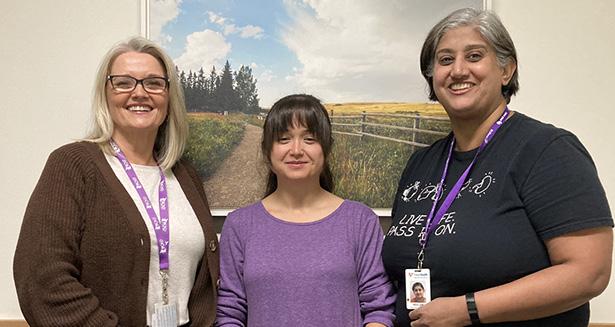 Colleen Tracy, Kristie Nagata and Neelam Mann, Fraser Health East Renal Social Workers based in Abbotsford, BC
Colleen Tracy, Kristie Nagata and Neelam Mann, Fraser Health East Renal Social Workers based in Abbotsford, BC
• 54,226 new users in 2022


Renal News mailing list
• 4,562 subscribers Facebook

Celebrating 25 years of BC Renal and the provincial renal network
BC Renal
Suite 260, 1770 West 7th Avenue Vancouver, BC V6J 4Y6, Canada
Phone: 604-875-7340 Email: bcrenal@bcrenal.ca
Facebook.com/ BCRenal
Twitter.com/ BCRenal
Youtube.com/ BCRenal Linkedin.com/ company/ bc-renal
